(CNN) -- Retired Gen. Norman Schwarzkopf, who led allied forces to a routing of Iraq in the 1991 Persian Gulf War and became one of the nation's most celebrated military heroes of the era, died Thursday, a U.S. defense official said. He was 78.
The death of the retired four-star Army general was confirmed by Defense Secretary Leon Panetta, who described Schwarzkopf as "one of the great military giants of the 20th century."
President Barack Obama called the death of Schwarzkopf a loss of an "American original."
"From his decorated service in Vietnam to the historic liberation of Kuwait and his leadership of United States Central Command, General Schwarzkopf stood tall for the country and Army he loved," Obama said.
"Our prayers are with the Schwarzkopf family, who tonight can know that his legacy will endure in a nation that is more secure because of his patriotic service."
.cnnArticleGalleryNav{border:1px solid #000;cursor:pointer;float:left;height:25px;text-align:center;width:25px} .cnnArticleGalleryNavOn{background-color:#C03;border:1px solid #000;float:left;height:25px;text-align:center;width:20px} .cnnArticleGalleryNavDisabled{background-color:#222;border:1px solid #000;color:#666;float:left;height:25px;text-align:center;width:25px} .cnnArticleExpandableTarget{background-color:#000;display:none;position:absolute} .cnnArticlePhotoContainer{height:122px;width:214px} .cnnArticleBoxImage{cursor:pointer;height:122px;padding-top:0;width:214px} .cnnArticleGalleryCaptionControl{background-color:#000;color:#FFF} .cnnArticleGalleryCaptionControlText{cursor:pointer;float:right;font-size:10px;padding:3px 10px 3px 3px} .cnnArticleGalleryPhotoContainer cite{background:none repeat scroll 0 0 #000;bottom:48px;color:#FFF;height:auto;left:420px;opacity:.7;position:absolute;width:200px;padding:10px} .cnnArticleGalleryClose{background-color:#fff;display:block;text-align:right} .cnnArticleGalleryCloseButton{cursor:pointer} .cnnArticleGalleryNavPrevNext span{background-color:#444;color:#CCC;cursor:pointer;float:left;height:23px;text-align:center;width:26px;padding:4px 0 0} .cnnArticleGalleryNavPrevNextDisabled span{background-color:#444;color:#666;float:left;height:23px;text-align:center;width:25px;padding:4px 0 0} .cnnVerticalGalleryPhoto{padding-right:68px;width:270px;margin:0 auto} .cnnGalleryContainer{float:left;clear:left;margin:0 0 20px;padding:0 0 0 10px}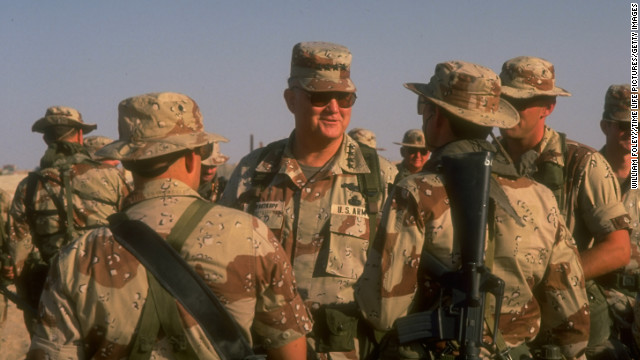 Retired Gen. Norman Schwarzkopf, who commanded coalition forces during the Gulf War, died Thursday, a U.S. official said. He was 78. Operation Desert Shield commander Schwarzkopf, center, with U.S. Special Forces soldiers in US-led allied gulf crisis-containing operations on September 27, 1990. Schwarzkopf is decorated with the medal of Grand Officer of the Legion of Honor, the highest French distinction awarded to a foreign policy figure by Gen. Maurice Schmitt, who led the French contingent to the allied operation against Iraq, at a ceremony at the Aubagne base, the French Foreign Legion base, in Southern France on July 24, 1991. Schwarzkopf salutes Iraqi Lt. Gen. Sultan Hashim Ahmad at the end of their talks to set cease-fire terms in the Gulf War on March 3, 1991, at a captured Iraqi air base. Schwarzkopf gives the thumbs up in Kuwait on April 17, 1994, during the last day of joint Kuwaiti-American-British maneuvers. Schwarzkopf was invited to observe the exercises, the biggest in the emirate since the Gulf War. Tony Hawk, Lhotse Merriam and Schwarzkopf attend the 21st Annual Great Sports Legends Dinner to benefit The Buoniconti Fund to Cure Paralysis at the Waldorf Astoria on September 19, 2006, in New York. U.S. Secretary of State Colin Powell talks with Schwarzkopf on December 6, 2002, during a receptionbefore the American Patriot Award Dinner in Washington. The dinner honored former U.S. President George H. W. Bush. Portrait of Schwarzkopf circa 1991. Schwarzkopf lunches at the Scientific Center in Kuwait City on February 26, 2001, to mark the 10th anniversary of Kuwait's liberation from Iraq. Republican presidential candidate and Texas Gov. George W. Bush and Schwarzkopf on stage after their speeches to veterans at Wright State University in Dayton, Ohio, on September 7, 2000. Schwarzkopf testifies before the Senate Armed Services Committee on May 11, 1993, alongside Maj. Kathleen Bergeron of the U.S. Marine Corps. Schwarzkopf and Bergeron defended the ban on gays in the military. Gen. Norman Schwarzkopf through the years Gen. Norman Schwarzkopf through the years Gen. Norman Schwarzkopf through the years Gen. Norman Schwarzkopf through the years Gen. Norman Schwarzkopf through the years Gen. Norman Schwarzkopf through the years Gen. Norman Schwarzkopf through the years Gen. Norman Schwarzkopf through the years Gen. Norman Schwarzkopf through the years Gen. Norman Schwarzkopf through the years HIDE CAPTION << <
Retired Gen. Norman Schwarzkopf, who commanded coalition forces during the Gulf War, died Thursday, a U.S. official said. He was 78. Operation Desert Shield commander Schwarzkopf, center, with U.S. Special Forces soldiers in US-led allied gulf crisis-containing operations on September 27, 1990. Schwarzkopf is decorated with the medal of Grand Officer of the Legion of Honor, the highest French distinction awarded to a foreign policy figure by Gen. Maurice Schmitt, who led the French contingent to the allied operation against Iraq, at a ceremony at the Aubagne base, the French Foreign Legion base, in Southern France on July 24, 1991. Schwarzkopf salutes Iraqi Lt. Gen. Sultan Hashim Ahmad at the end of their talks to set cease-fire terms in the Gulf War on March 3, 1991, at a captured Iraqi air base. Schwarzkopf gives the thumbs up in Kuwait on April 17, 1994, during the last day of joint Kuwaiti-American-British maneuvers. Schwarzkopf was invited to observe the exercises, the biggest in the emirate since the Gulf War. Tony Hawk, Lhotse Merriam and Schwarzkopf attend the 21st Annual Great Sports Legends Dinner to benefit The Buoniconti Fund to Cure Paralysis at the Waldorf Astoria on September 19, 2006, in New York. U.S. Secretary of State Colin Powell talks with Schwarzkopf on December 6, 2002, during a receptionbefore the American Patriot Award Dinner in Washington. The dinner honored former U.S. President George H. W. Bush. Portrait of Schwarzkopf circa 1991. Schwarzkopf lunches at the Scientific Center in Kuwait City on February 26, 2001, to mark the 10th anniversary of Kuwait's liberation from Iraq. Republican presidential candidate and Texas Gov. George W. Bush and Schwarzkopf on stage after their speeches to veterans at Wright State University in Dayton, Ohio, on September 7, 2000. Schwarzkopf testifies before the Senate Armed Services Committee on May 11, 1993, alongside Maj. Kathleen Bergeron of the U.S. Marine Corps. Schwarzkopf and Bergeron defended the ban on gays in the military. Gen. Norman Schwarzkopf through the years Gen. Norman Schwarzkopf through the years Gen. Norman Schwarzkopf through the years Gen. Norman Schwarzkopf through the years Gen. Norman Schwarzkopf through the years Gen. Norman Schwarzkopf through the years Gen. Norman Schwarzkopf through the years Gen. Norman Schwarzkopf through the years Gen. Norman Schwarzkopf through the years Gen. Norman Schwarzkopf through the years HIDE CAPTION << <  1
1  2
2  3
3  4
4  5
5  6
6  7
7  8
8  9
9  10 > >>
10 > >>  Gen. Norman Schwarzkopf through the years
Gen. Norman Schwarzkopf through the years 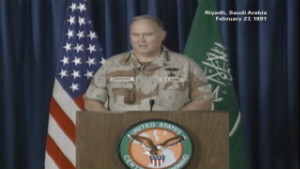 1991: Schwarzkopf briefs the press .cnnArticleGalleryNav{border:1px solid #000;cursor:pointer;float:left;height:25px;text-align:center;width:25px} .cnnArticleGalleryNavOn{background-color:#C03;border:1px solid #000;float:left;height:25px;text-align:center;width:20px} .cnnArticleGalleryNavDisabled{background-color:#222;border:1px solid #000;color:#666;float:left;height:25px;text-align:center;width:25px} .cnnArticleExpandableTarget{background-color:#000;display:none;position:absolute} .cnnArticlePhotoContainer{height:122px;width:214px} .cnnArticleBoxImage{cursor:pointer;height:122px;padding-top:0;width:214px} .cnnArticleGalleryCaptionControl{background-color:#000;color:#FFF} .cnnArticleGalleryCaptionControlText{cursor:pointer;float:right;font-size:10px;padding:3px 10px 3px 3px} .cnnArticleGalleryPhotoContainer cite{background:none repeat scroll 0 0 #000;bottom:48px;color:#FFF;height:auto;left:420px;opacity:.7;position:absolute;width:200px;padding:10px} .cnnArticleGalleryClose{background-color:#fff;display:block;text-align:right} .cnnArticleGalleryCloseButton{cursor:pointer} .cnnArticleGalleryNavPrevNext span{background-color:#444;color:#CCC;cursor:pointer;float:left;height:23px;text-align:center;width:26px;padding:4px 0 0} .cnnArticleGalleryNavPrevNextDisabled span{background-color:#444;color:#666;float:left;height:23px;text-align:center;width:25px;padding:4px 0 0} .cnnVerticalGalleryPhoto{padding-right:68px;width:270px;margin:0 auto} .cnnGalleryContainer{float:left;clear:left;margin:0 0 20px;padding:0 0 0 10px}
1991: Schwarzkopf briefs the press .cnnArticleGalleryNav{border:1px solid #000;cursor:pointer;float:left;height:25px;text-align:center;width:25px} .cnnArticleGalleryNavOn{background-color:#C03;border:1px solid #000;float:left;height:25px;text-align:center;width:20px} .cnnArticleGalleryNavDisabled{background-color:#222;border:1px solid #000;color:#666;float:left;height:25px;text-align:center;width:25px} .cnnArticleExpandableTarget{background-color:#000;display:none;position:absolute} .cnnArticlePhotoContainer{height:122px;width:214px} .cnnArticleBoxImage{cursor:pointer;height:122px;padding-top:0;width:214px} .cnnArticleGalleryCaptionControl{background-color:#000;color:#FFF} .cnnArticleGalleryCaptionControlText{cursor:pointer;float:right;font-size:10px;padding:3px 10px 3px 3px} .cnnArticleGalleryPhotoContainer cite{background:none repeat scroll 0 0 #000;bottom:48px;color:#FFF;height:auto;left:420px;opacity:.7;position:absolute;width:200px;padding:10px} .cnnArticleGalleryClose{background-color:#fff;display:block;text-align:right} .cnnArticleGalleryCloseButton{cursor:pointer} .cnnArticleGalleryNavPrevNext span{background-color:#444;color:#CCC;cursor:pointer;float:left;height:23px;text-align:center;width:26px;padding:4px 0 0} .cnnArticleGalleryNavPrevNextDisabled span{background-color:#444;color:#666;float:left;height:23px;text-align:center;width:25px;padding:4px 0 0} .cnnVerticalGalleryPhoto{padding-right:68px;width:270px;margin:0 auto} .cnnGalleryContainer{float:left;clear:left;margin:0 0 20px;padding:0 0 0 10px} 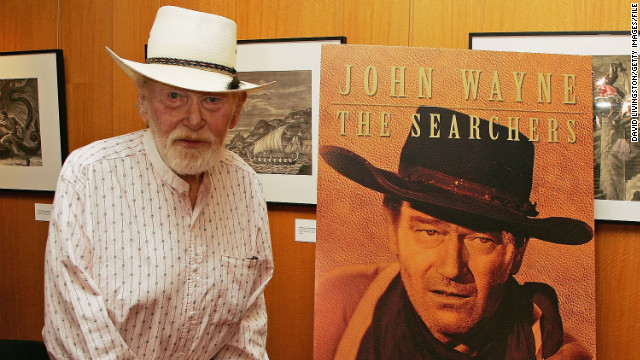 Harry Carey Jr., an actor best known for his characters in Western movies, died December 27 at age 91. He had appeared in nearly 100 films during his career. Retired Gen. Norman Schwarzkopf, who commanded coalition forces during the Gulf War, died Thursday, December 27, a U.S. official said. He was 78. Character actor Charles Durning died December 24 at 89, according to his family. He won Tony and Golden Globe awards and received two Oscar nominations as best supporting actor, including for "The Best Little Whorehouse in Texas" (1982) and "To Be or Not to Be (1983). Actor Jack Klugman, best known for playing messy sportswriter Oscar Madison in TV's "The Odd Couple," died December 24 at age 90. Klugman won two Emmys for his role in the sitcom, plus won an Emmy in 1964 for a role in "The Defenders." Klugman also starred in "Quincy, M.E." as medical examiner Dr. R. Quincy from 1976 to 1983. Conservative jurist Robert H. Bork died on December 19 at age 85 at his home in Virginia, sources close to his family told CNN. Bork was best known for being nominated to the Supreme Court in 1987, only to be rejected after a contentious confirmation battle. U.S. Sen. Daniel Inouye of Hawaii, the U.S. Senate's second-longest serving member, has died at 88, his office announced December 17. Indian sitar maestro Ravi Shankar died December 11 at age 92. The legendary sitar player brought Indian music to the West and taught Beatle George Harrison how to play the stringed instrument. Among his survivors is daughter Norah Jones, the pop and jazz singer. Singer Jenni Rivera, 43, died when the small plane she was traveling in crashed in the mountains of northern Mexico, her brother told CNN. The plane wreckage was found Sunday, December 9. Jazz pianist Dave Brubeck, 91, died December 5 from heart failure, said his manager, Russell Gloyd. Puerto Rican boxer Hector "Macho" Camacho died on November 24. A gunman shot him in the face in front of a bar in his hometown of Bayamon. Actor Larry Hagman, who played scheming oil tycoon J.R. Ewing on "Dallas," died November 23 of complications from cancer. He was 81. Native American activist Russell Means died October 22 from throat cancer, an Oglala Lakota Sioux nation representative said. Former Sen. George McGovern, 90, died on October 21. McGovern was the Democratic nominee for president in 1972. He ran against incumbent Richard Nixon and won only 17 electoral votes to Nixon's 520. He served in the U.S. Senate and House representing South Dakota before his loss for the top office. Former U.S. Sen. Arlen Specter of Pennsylvania died at age 82 of complications from non-Hodgkin's lymphoma on October 14 at his home in Philadelphia, his family said. Specter served five terms as a Republican senator and switched political affiliation in 2009. TV and radio personality Gary Collins -- seen here in "Hour Magazine" and also known for his roles in television series including "The Sixth Sense" and "The Wackiest Ship in the Army" -- died on October 13, according to officials in Harrison County, Mississippi. He was 74. Former NFL player and actor Alex Karras died on October 10 in Los Angeles, a family spokesman said. He was 77. Legendary singer Andy Williams, known for his smooth voice and classics such as "Moon River," died after a yearlong battle with bladder cancer at his Branson, Missouri, home on September 25. He was 84. Actor John Ingle, who played patriarch Edward Quartermaine on ABC's "General Hospital," died September 15 at age 84. Michael Clarke Duncan, nominated for an Academy Award for his role in the 1999 film "The Green Mile," "suffered a myocardial infarction on July 13 and never fully recovered," a written statement from Joy Fehily said. He died September 3 at age 54. Hal David, the lyricist behind such standards as "Raindrops Keep Falling on My Head" and "What the World Needs Now is Love," died September 1 at age 91. Neil Armstrong, the American astronaut who made "one giant leap for mankind" when he became the first man to walk on the moon, died August 25. He was 82. Helen Gurley Brown, former editor-in-chief of Cosmopolitan magazine and author of "Sex and the Single Girl," died on August 13 at age 90. Puppeteer Jerry Nelson, famous for lending his voice to Muppets on "Sesame Street," "The Muppet Show" and "Fraggle Rock," died August 23. He was 78. Ethiopian Prime Minister Meles Zenawi, a strongman in the troubled Horn of Africa and a key United States ally, died on August 20 at the age of 57. Comedian Phyllis Diller, known for her self-deprecating humor, died "peacefully in her sleep" on August 20. She was 95. Film director Tony Scott left notes in his car and office before plunging to his death from the Vincent Thomas Bridge in San Pedro, California, a Los Angeles County coroner official said. Scott died August 19 at age 68. Actor Ron Palillo, who played class clown Arnold Horshack on the 1970s television comedy "Welcome Back, Kotter," died from a heart attack at age 63 on August 14. Marvin Hamlisch, a prolific American composer, died August 6 after a more than four-decade career that spanned film, music, television and theater. He was 68. Writer Gore Vidal died July 31 of complications from pneumonia, a nephew said. He was 86. At 69, actress Lupe Ontiveros, who co-starred in the hit films "Selena" and "As Good As It Gets," died of liver cancer on July 26. Sherman Hemsley, who played the brash George Jefferson on "All in the Family" and "The Jeffersons," died July 24 at age 74. Sally Ride, the first American woman to fly in space, died after a 17-month battle with pancreatic cancer on July 23. She was 61. Country legend Kitty Wells died on July 16, due to complications from a stroke. She was 92. Keyboard player Jon Lord, who fused classical and heavy metal to make Deep Purple one of the biggest rock bands in the world, died July 16 after a long battle with pancreatic cancer. He was 71. Oscar-winning actress Celeste Holm died at her home in New York on July 15 at the age of 95. Here Holm, center, appears in 1950's "All About Eve" with Garry Merrill, from left, Bette Davis and Hugh Marlow. On July 8, film and television actor Ernest Borgnine, who won an Academy Award for his portrayal of a lovelorn butcher in 1955's "Marty," died at age 95. Actor Andy Griffith, who played folksy Sheriff Andy Taylor in the fictional town of Mayberry, died July 3 at the age of 86. Nora Ephron, the screenwriter and director whose sharp, edgy romantic comedies featuring strong women took her to the top ranks of a film industry mostly dominated by men, died June 26 at age 71. Science fiction author Ray Bradbury, whose imagination yielded classic books such as "Fahrenheit 451," "The Martian Chronicles" and "Something Wicked This Way Comes," died at 91 on June 5. Former "Family Feud" host Richard Dawson died on June 2 at the age of 79. Bluegrass guitarist and singer Doc Watson died at 89 on May 29 after struggling to recover from colon surgery. Robin Gibb, one of three brothers who made up the Bee Gees, the group behind "Saturday Night Fever" and other iconic sounds from the 1970s, died on May 20. He was 62. Gibb died "following his long battle with cancer and intestinal surgery," a statement said. Donna Summer, the "Queen of Disco" whose hits included "Hot Stuff," "Bad Girls," "Love to Love You Baby" and "She Works Hard for the Money," died May 17. She was 63. Mexican author Carlos Fuentes died on May 15 at the age of 83. Donald "Duck" Dunn, left, the bass player who laid the musical floor beneath soul legends like Booker T. and the MGs, Sam and Dave and Otis Redding, died May 13. He was 70. Carroll Shelby, famous for creating high-performance road and racing cars bearing his name, died on May 10 in Dallas. He was 89. His name is probably most associated with the Cobra and the Shelby line of Ford Mustang-based performance cars. British-Israeli hairdresser Vidal Sassoon died on May 9 at the age of 84. Maurice Sendak, author of "Where the Wild Things Are" and illustrator of nearly 100 books, died at age 83 on May 8. George Lindsey, the actor who portrayed the country-bumpkin mechanic Goober Pyle on "The Andy Griffith Show," died May 6 after a brief illness, his family said. He was 83. Adam "MCA" Yauch, a founding member of the pioneering rap band Beastie Boys, died on May 4 after a nearly three-year battle with cancer. He was 47. Levon Helm, the drummer, multi-instrumentalist and singer for The Band who kept the band's heart for more than three decades, died "peacefully" April 19, according to his record label, Vanguard Records. He was 71. Junior Seau, linebacker for the San Diego Chargers, died from a self-inflicted gunshot wound on May 2. Television host Dick Clark poses for a portrait circa 1968. The longtime host of the influential "American Bandstand" died April 18 after suffering a heart attack. He was 82. Former Algerian President Ahmed Ben Bella died on April 11 at the age of 96. Mike Wallace, who spent four decades as a hard-hitting, provocative news correspondent on CBS' "60 Minutes," died at 93 on April 7. Artist Thomas Kinkade, the self-described "painter of light," died from accidental overdose of alcohol and Valium at age 54 on April 6. Porsche 911 designer Ferdinand Alexander Porsche died on April 5 at the age of 76. Earl Scruggs, whose distinctive picking style and association with Lester Flatt cemented bluegrass music's place in popular culture, died March 28 of natural causes at a Nashville hospital. He was 88. Doobie Brothers drummer Michael Hossack died at his home in Dubois, Wyoming, on March 11 at the age of 65 after battling cancer for some time. Jimmy Ellis, who belted out the dance anthem "Disco Inferno" in the 1970s for the Trammps, died on March 8 at 74 years old. Here, the Trammps in 1973: From left, Earl Young, seated, Harold Wade, Jimmy Ellis, Stanley Wade and Robert Upchurch. Andrew Breitbart, editor and founder of the conservative blog BigGovernment.com, died at age 43 of natural causes on March 1. His posting of an explicit photo U.S. Rep. Anthony Weiner sent to Twitter followers led to Weiner's downfall. Davy Jones, whose charming grin and British accent won the hearts of millions of fans on the 1960s television series "The Monkees," died on February 29 at age 66. Hall of Fame catcher for the New York Mets Gary Carter lost a battle to brain cancer at age 57 on February 16. New York Times reporter Anthony Shadid died of an asthma attack in Syria on February 16. The news broke on the eve of the Grammy Awards, the music industry's biggest night: The woman with the pitch-perfect voice who once reigned as the queen of pop at the awards show had died. Whitney Houston was found dead by her bodyguard on February 11. She was 48. The last known surviving veteran of World War I died on February 4. Florence Green, 110, was a waitress in Britain's Royal Air Force. Don Cornelius, the founder of the "Soul Train" television show, was found dead of an apparent self-inflicted gunshot wound to his head on February 1. It was later ruled a suicide. He was 75. Robert Hegyes, known for his role as Juan Epstein on the '70s sitcom "Welcome Back, Kotter," died on January 26. He was 60. Actor James Farentino, whose television acting career began in the early 1960s, died on January 24. He was 73. Longtime Penn State Coach Joe Paterno -- whose tenure as the most successful coach in major college football history ended abruptly in November 2011 amid allegations that he failed to respond forcefully enough to a sex abuse scandal involving a former assistant -- died January 22, his family said. He was 85. Etta James, whose assertive, earthy voice lit up such hits as "The Wallflower," "Something's Got a Hold on Me" and the wedding favorite "At Last," died on January 20. She was 73. People we've lost in 2012 People we've lost in 2012 People we've lost in 2012 People we've lost in 2012 People we've lost in 2012 People we've lost in 2012 People we've lost in 2012 People we've lost in 2012 People we've lost in 2012 People we've lost in 2012 People we've lost in 2012 People we've lost in 2012 People we've lost in 2012 People we've lost in 2012 People we've lost in 2012 People we've lost in 2012 People we've lost in 2012 People we've lost in 2012 People we've lost in 2012 People we've lost in 2012 People we've lost in 2012 Helen Gurley Brown People we've lost in 2012 People we've lost in 2012 People we've lost in 2012 People we've lost in 2012 People we've lost in 2012 People we've lost in 2012 People we've lost in 2012 People we've lost in 2012 People we've lost in 2012 sally ride obit Kitty Wells People we've lost in 2012 People we've lost in 2012 People we've lost in 2012 People we've lost in 2012 People we've lost in 2012 Ray Bradbury People we've lost in 2012 Doc Watson People we've lost in 2012 People we've lost in 2012 People we've lost in 2012 People we've lost in 2012 People we've lost in 2012 People we've lost in 2012 Maurice Sendak People we've lost in 2012 People we've lost in 2012 People we've lost in 2012 Junior Seau People we've lost in 2012 People we've lost in 2012 Mike Wallace Thomas Kinkade People we've lost in 2012 People we've lost in 2012 People we've lost in 2012 People we've lost in 2012 Andrew Breitbart People we've lost in 2012 Gary Carter People we've lost in 2012 People we've lost in 2012 People we've lost in 2012 People we've lost in 2012 People we've lost in 2012 People we've lost in 2012 Joe Paterno People we've lost in 2012 HIDE CAPTION << <
Harry Carey Jr., an actor best known for his characters in Western movies, died December 27 at age 91. He had appeared in nearly 100 films during his career. Retired Gen. Norman Schwarzkopf, who commanded coalition forces during the Gulf War, died Thursday, December 27, a U.S. official said. He was 78. Character actor Charles Durning died December 24 at 89, according to his family. He won Tony and Golden Globe awards and received two Oscar nominations as best supporting actor, including for "The Best Little Whorehouse in Texas" (1982) and "To Be or Not to Be (1983). Actor Jack Klugman, best known for playing messy sportswriter Oscar Madison in TV's "The Odd Couple," died December 24 at age 90. Klugman won two Emmys for his role in the sitcom, plus won an Emmy in 1964 for a role in "The Defenders." Klugman also starred in "Quincy, M.E." as medical examiner Dr. R. Quincy from 1976 to 1983. Conservative jurist Robert H. Bork died on December 19 at age 85 at his home in Virginia, sources close to his family told CNN. Bork was best known for being nominated to the Supreme Court in 1987, only to be rejected after a contentious confirmation battle. U.S. Sen. Daniel Inouye of Hawaii, the U.S. Senate's second-longest serving member, has died at 88, his office announced December 17. Indian sitar maestro Ravi Shankar died December 11 at age 92. The legendary sitar player brought Indian music to the West and taught Beatle George Harrison how to play the stringed instrument. Among his survivors is daughter Norah Jones, the pop and jazz singer. Singer Jenni Rivera, 43, died when the small plane she was traveling in crashed in the mountains of northern Mexico, her brother told CNN. The plane wreckage was found Sunday, December 9. Jazz pianist Dave Brubeck, 91, died December 5 from heart failure, said his manager, Russell Gloyd. Puerto Rican boxer Hector "Macho" Camacho died on November 24. A gunman shot him in the face in front of a bar in his hometown of Bayamon. Actor Larry Hagman, who played scheming oil tycoon J.R. Ewing on "Dallas," died November 23 of complications from cancer. He was 81. Native American activist Russell Means died October 22 from throat cancer, an Oglala Lakota Sioux nation representative said. Former Sen. George McGovern, 90, died on October 21. McGovern was the Democratic nominee for president in 1972. He ran against incumbent Richard Nixon and won only 17 electoral votes to Nixon's 520. He served in the U.S. Senate and House representing South Dakota before his loss for the top office. Former U.S. Sen. Arlen Specter of Pennsylvania died at age 82 of complications from non-Hodgkin's lymphoma on October 14 at his home in Philadelphia, his family said. Specter served five terms as a Republican senator and switched political affiliation in 2009. TV and radio personality Gary Collins -- seen here in "Hour Magazine" and also known for his roles in television series including "The Sixth Sense" and "The Wackiest Ship in the Army" -- died on October 13, according to officials in Harrison County, Mississippi. He was 74. Former NFL player and actor Alex Karras died on October 10 in Los Angeles, a family spokesman said. He was 77. Legendary singer Andy Williams, known for his smooth voice and classics such as "Moon River," died after a yearlong battle with bladder cancer at his Branson, Missouri, home on September 25. He was 84. Actor John Ingle, who played patriarch Edward Quartermaine on ABC's "General Hospital," died September 15 at age 84. Michael Clarke Duncan, nominated for an Academy Award for his role in the 1999 film "The Green Mile," "suffered a myocardial infarction on July 13 and never fully recovered," a written statement from Joy Fehily said. He died September 3 at age 54. Hal David, the lyricist behind such standards as "Raindrops Keep Falling on My Head" and "What the World Needs Now is Love," died September 1 at age 91. Neil Armstrong, the American astronaut who made "one giant leap for mankind" when he became the first man to walk on the moon, died August 25. He was 82. Helen Gurley Brown, former editor-in-chief of Cosmopolitan magazine and author of "Sex and the Single Girl," died on August 13 at age 90. Puppeteer Jerry Nelson, famous for lending his voice to Muppets on "Sesame Street," "The Muppet Show" and "Fraggle Rock," died August 23. He was 78. Ethiopian Prime Minister Meles Zenawi, a strongman in the troubled Horn of Africa and a key United States ally, died on August 20 at the age of 57. Comedian Phyllis Diller, known for her self-deprecating humor, died "peacefully in her sleep" on August 20. She was 95. Film director Tony Scott left notes in his car and office before plunging to his death from the Vincent Thomas Bridge in San Pedro, California, a Los Angeles County coroner official said. Scott died August 19 at age 68. Actor Ron Palillo, who played class clown Arnold Horshack on the 1970s television comedy "Welcome Back, Kotter," died from a heart attack at age 63 on August 14. Marvin Hamlisch, a prolific American composer, died August 6 after a more than four-decade career that spanned film, music, television and theater. He was 68. Writer Gore Vidal died July 31 of complications from pneumonia, a nephew said. He was 86. At 69, actress Lupe Ontiveros, who co-starred in the hit films "Selena" and "As Good As It Gets," died of liver cancer on July 26. Sherman Hemsley, who played the brash George Jefferson on "All in the Family" and "The Jeffersons," died July 24 at age 74. Sally Ride, the first American woman to fly in space, died after a 17-month battle with pancreatic cancer on July 23. She was 61. Country legend Kitty Wells died on July 16, due to complications from a stroke. She was 92. Keyboard player Jon Lord, who fused classical and heavy metal to make Deep Purple one of the biggest rock bands in the world, died July 16 after a long battle with pancreatic cancer. He was 71. Oscar-winning actress Celeste Holm died at her home in New York on July 15 at the age of 95. Here Holm, center, appears in 1950's "All About Eve" with Garry Merrill, from left, Bette Davis and Hugh Marlow. On July 8, film and television actor Ernest Borgnine, who won an Academy Award for his portrayal of a lovelorn butcher in 1955's "Marty," died at age 95. Actor Andy Griffith, who played folksy Sheriff Andy Taylor in the fictional town of Mayberry, died July 3 at the age of 86. Nora Ephron, the screenwriter and director whose sharp, edgy romantic comedies featuring strong women took her to the top ranks of a film industry mostly dominated by men, died June 26 at age 71. Science fiction author Ray Bradbury, whose imagination yielded classic books such as "Fahrenheit 451," "The Martian Chronicles" and "Something Wicked This Way Comes," died at 91 on June 5. Former "Family Feud" host Richard Dawson died on June 2 at the age of 79. Bluegrass guitarist and singer Doc Watson died at 89 on May 29 after struggling to recover from colon surgery. Robin Gibb, one of three brothers who made up the Bee Gees, the group behind "Saturday Night Fever" and other iconic sounds from the 1970s, died on May 20. He was 62. Gibb died "following his long battle with cancer and intestinal surgery," a statement said. Donna Summer, the "Queen of Disco" whose hits included "Hot Stuff," "Bad Girls," "Love to Love You Baby" and "She Works Hard for the Money," died May 17. She was 63. Mexican author Carlos Fuentes died on May 15 at the age of 83. Donald "Duck" Dunn, left, the bass player who laid the musical floor beneath soul legends like Booker T. and the MGs, Sam and Dave and Otis Redding, died May 13. He was 70. Carroll Shelby, famous for creating high-performance road and racing cars bearing his name, died on May 10 in Dallas. He was 89. His name is probably most associated with the Cobra and the Shelby line of Ford Mustang-based performance cars. British-Israeli hairdresser Vidal Sassoon died on May 9 at the age of 84. Maurice Sendak, author of "Where the Wild Things Are" and illustrator of nearly 100 books, died at age 83 on May 8. George Lindsey, the actor who portrayed the country-bumpkin mechanic Goober Pyle on "The Andy Griffith Show," died May 6 after a brief illness, his family said. He was 83. Adam "MCA" Yauch, a founding member of the pioneering rap band Beastie Boys, died on May 4 after a nearly three-year battle with cancer. He was 47. Levon Helm, the drummer, multi-instrumentalist and singer for The Band who kept the band's heart for more than three decades, died "peacefully" April 19, according to his record label, Vanguard Records. He was 71. Junior Seau, linebacker for the San Diego Chargers, died from a self-inflicted gunshot wound on May 2. Television host Dick Clark poses for a portrait circa 1968. The longtime host of the influential "American Bandstand" died April 18 after suffering a heart attack. He was 82. Former Algerian President Ahmed Ben Bella died on April 11 at the age of 96. Mike Wallace, who spent four decades as a hard-hitting, provocative news correspondent on CBS' "60 Minutes," died at 93 on April 7. Artist Thomas Kinkade, the self-described "painter of light," died from accidental overdose of alcohol and Valium at age 54 on April 6. Porsche 911 designer Ferdinand Alexander Porsche died on April 5 at the age of 76. Earl Scruggs, whose distinctive picking style and association with Lester Flatt cemented bluegrass music's place in popular culture, died March 28 of natural causes at a Nashville hospital. He was 88. Doobie Brothers drummer Michael Hossack died at his home in Dubois, Wyoming, on March 11 at the age of 65 after battling cancer for some time. Jimmy Ellis, who belted out the dance anthem "Disco Inferno" in the 1970s for the Trammps, died on March 8 at 74 years old. Here, the Trammps in 1973: From left, Earl Young, seated, Harold Wade, Jimmy Ellis, Stanley Wade and Robert Upchurch. Andrew Breitbart, editor and founder of the conservative blog BigGovernment.com, died at age 43 of natural causes on March 1. His posting of an explicit photo U.S. Rep. Anthony Weiner sent to Twitter followers led to Weiner's downfall. Davy Jones, whose charming grin and British accent won the hearts of millions of fans on the 1960s television series "The Monkees," died on February 29 at age 66. Hall of Fame catcher for the New York Mets Gary Carter lost a battle to brain cancer at age 57 on February 16. New York Times reporter Anthony Shadid died of an asthma attack in Syria on February 16. The news broke on the eve of the Grammy Awards, the music industry's biggest night: The woman with the pitch-perfect voice who once reigned as the queen of pop at the awards show had died. Whitney Houston was found dead by her bodyguard on February 11. She was 48. The last known surviving veteran of World War I died on February 4. Florence Green, 110, was a waitress in Britain's Royal Air Force. Don Cornelius, the founder of the "Soul Train" television show, was found dead of an apparent self-inflicted gunshot wound to his head on February 1. It was later ruled a suicide. He was 75. Robert Hegyes, known for his role as Juan Epstein on the '70s sitcom "Welcome Back, Kotter," died on January 26. He was 60. Actor James Farentino, whose television acting career began in the early 1960s, died on January 24. He was 73. Longtime Penn State Coach Joe Paterno -- whose tenure as the most successful coach in major college football history ended abruptly in November 2011 amid allegations that he failed to respond forcefully enough to a sex abuse scandal involving a former assistant -- died January 22, his family said. He was 85. Etta James, whose assertive, earthy voice lit up such hits as "The Wallflower," "Something's Got a Hold on Me" and the wedding favorite "At Last," died on January 20. She was 73. People we've lost in 2012 People we've lost in 2012 People we've lost in 2012 People we've lost in 2012 People we've lost in 2012 People we've lost in 2012 People we've lost in 2012 People we've lost in 2012 People we've lost in 2012 People we've lost in 2012 People we've lost in 2012 People we've lost in 2012 People we've lost in 2012 People we've lost in 2012 People we've lost in 2012 People we've lost in 2012 People we've lost in 2012 People we've lost in 2012 People we've lost in 2012 People we've lost in 2012 People we've lost in 2012 Helen Gurley Brown People we've lost in 2012 People we've lost in 2012 People we've lost in 2012 People we've lost in 2012 People we've lost in 2012 People we've lost in 2012 People we've lost in 2012 People we've lost in 2012 People we've lost in 2012 sally ride obit Kitty Wells People we've lost in 2012 People we've lost in 2012 People we've lost in 2012 People we've lost in 2012 People we've lost in 2012 Ray Bradbury People we've lost in 2012 Doc Watson People we've lost in 2012 People we've lost in 2012 People we've lost in 2012 People we've lost in 2012 People we've lost in 2012 People we've lost in 2012 Maurice Sendak People we've lost in 2012 People we've lost in 2012 People we've lost in 2012 Junior Seau People we've lost in 2012 People we've lost in 2012 Mike Wallace Thomas Kinkade People we've lost in 2012 People we've lost in 2012 People we've lost in 2012 People we've lost in 2012 Andrew Breitbart People we've lost in 2012 Gary Carter People we've lost in 2012 People we've lost in 2012 People we've lost in 2012 People we've lost in 2012 People we've lost in 2012 People we've lost in 2012 Joe Paterno People we've lost in 2012 HIDE CAPTION << <  1
1  2
2  3
3  4
4  5
5  6
6  7
7  8
8  9
9  10
10  11
11  12
12  13
13  14
14  15
15  16
16  17
17  18
18  19
19  20
20  21
21  22
22  23
23  24
24  25
25  26
26  27
27  28
28  29
29  30
30  31
31  32
32  33
33  34
34  35
35  36
36  37
37  38
38  39
39  40
40  41
41  42
42  43
43  44
44  45
45  46
46  47
47  48
48  49
49  50
50  51
51  52
52  53
53  54
54  55
55  56
56  57
57  58
58  59
59  60
60  61
61  62
62  63
63  64
64  65
65  66
66  67
67  68
68  69
69  70
70  71 > >>
71 > >>  Photos: People we've lost in 2012
Photos: People we've lost in 2012 Virtually unknown to the public before the Persian Gulf War, Schwarzkopf became a household name while he oversaw the buildup of 700,000 coalition troops, including more than 540,000 U.S. forces, after Iraq invaded Kuwait in 1990.
The war began on January 17, 1991, with the start of the nearly six-week air campaign against Iraq that was followed by a 100-hour ground offensive that pushed Iraqi leader Saddam Hussein's forces out of Kuwait.
A Time magazine correspondent described the general, as he prepared his troops along the Kuwaiti border, as a man "with a John Wayne swagger and a growl like a grizzly."
Schwarzkopf, dubbed "Stormin' Norman" by his troops because of his reported temper, captured the public's imagination with his plain, frank talk about the war's progress.
He once told a room full of reporters: "As far as Saddam Hussein being a great military strategist, he is neither a strategist, nor is he schooled in the operational arts, nor is he a tactician, nor is he a general, nor is he a soldier. Other than that, he's a great military man, I want you to know that."
Former Secretary of State Colin Powell, who served as chairman of the Joint Chiefs of Staff and, therefore, Schwarzkopf's commander, said the general's leadership during the war inspired the nation.
" 'Stormin' Norman' led the coalition forces to victory, ejecting the Iraqi Army from Kuwait and restoring the rightful government," Powell said in a statement. "His leadership not only inspired his troops, but also inspired the nation. He was a good friend of mine, a close buddy. I will miss him."
Schwarzkopf, a highly decorated Vietnam War veteran, ushered in a new era for the U.S. military, whose exploits were broadcast live around the clock.
After the war, he was featured in his desert fatigues on the cover of nearly every major American magazine, and he joined thousands of troops for a welcome-home ticker tape parade in New York City.
England's Queen Elizabeth II made him an honorary knight, and he received a standing ovation from Congress upon his return to the United States.
Former President George H.W. Bush, who is hospitalized, said the general "epitomized the 'duty, service, country' creed that has defended our freedom and seen this great nation through our most trying international crises."
"More than that, he was a good and decent man -- and a dear friend," Bush said in a statement released by his office.
While Schwarzkopf's leadership was heralded, critics raised questions about the decision to quickly end the ground war in Iraq and leave Hussein in power.
Schwarzkopf was heavily criticized in the Thomas E. Ricks book "The Generals: American Military Command from World War II to Today" for allowing Iraq to use helicopters in no-fly zones established after the war. Iraq used the helicopters to put down a Shiite uprising that had been openly encouraged by the United States.
Schwarzkopf told CNN's Larry King in a September 1992 interview that the preferred plan with Iraq was to avoid ever having to invade.
"We never wanted a war," he said. "Once the war started, we were hoping that ... they'd come to their senses and stop right then. ... After 38 days, we got to a point where we could launch the ground war and, by that time, they hadn't withdrawn."
While his role in the Gulf War made him famous, Schwarzkopf told King, war itself and the bloodshed that went with it didn't appeal to him.
"I hate war. Absolutely, I hate war," he said. "Good generalship is a realization that ... you've got to try and figure out how to accomplish your mission with a minimum loss of human life."
In his autobiography, "It Doesn't Take A Hero," Schwarzkopf outlined the reasons that coalition forces didn't press on to the Iraqi capital during the first Gulf War.
"Had the United States and the United Kingdom gone on alone to capture Baghdad, under the provisions of the Geneva and Hague conventions we would have been considered occupying powers and therefore would have been responsible for all the costs of maintaining or restoring government, education and other services for the people of Iraq."
Schwarzkopf wrote that had "we taken all of Iraq, we would have been like a dinosaur in the tar pit -- we would still be there, and we, not the United Nations, would be bearing the costs of that occupation."
Schwarzkopf supported the 2003 U.S.-led invasion of Iraq, though he later criticized the Pentagon for what he called mistakes that included sending undertrained Reserve and National Guard troops into combat.
Schwarzkopf retired in August 1991, hit the lecture circuit and briefly was a military analyst for NBC.
He told King that he was asked to run for U.S. Senate.
"I got off the airplane and they came after me to, you know, run for senator in Florida, and I told them, 'No,' " he said. "I'm not a politician. I'd make a lousy politician."
Born in Trenton, New Jersey, in 1934, he was named H. Norman Schwarzkopf Jr. after his father.
His father, Major Gen. H. Norman Schwarzkopf, a West Point graduate who fought in World War I, became head of New Jersey State Police, helping to build the fledgling force and eventually leading the investigation of the infamous Lindbergh baby kidnapping.
"The day I was born, my father said ... 'That boy is going to West Point,' " Schwarzkopf recalled to King. "And that's the only thing I ever heard my entire young life."
After World War II, according to the book, the younger Schwarzkopf traveled to Iran to be with his father, who was helping advise the training of the country's police force under the shah, Mohammad Reza Pahlavi.
Schwarzkopf attended a Swiss boarding school and later returned to the New York region to enroll at West Point before heading to Vietnam for the first time in 1966.
"I prided myself on being unflappable even in the most chaotic of circumstances," he wrote. "That guise lasted until Vietnam, where I realized that I was dealing with human lives and if one were lost, it could never be replaced. I quickly learned that there was nothing wrong with being emotional."
He was commissioned a second lieutenant and served two tours of duty in Vietnam, where he received three Silver Stars. In 1983, he led troops during the invasion of Grenada.
Schwarzkopf, who died in Tampa, Florida, is survived by his wife, Brenda, two daughters and a son.
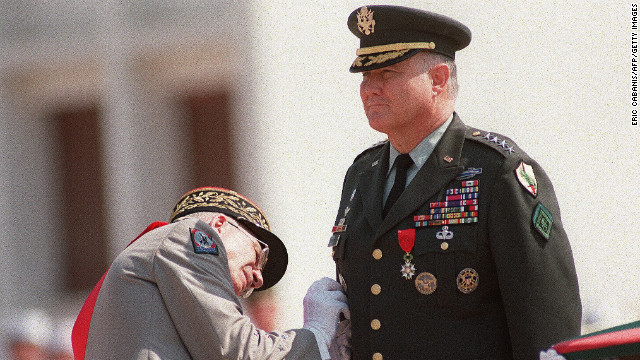 Schwarzkopf is decorated with the medal of Grand Officer of the Legion of Honor, the highest French distinction awarded to a foreign policy figure by Gen. Maurice Schmitt, who led the French contingent to the allied operation against Iraq, at a ceremony at the Aubagne base, the French Foreign Legion base, in Southern France on July 24, 1991.
Schwarzkopf is decorated with the medal of Grand Officer of the Legion of Honor, the highest French distinction awarded to a foreign policy figure by Gen. Maurice Schmitt, who led the French contingent to the allied operation against Iraq, at a ceremony at the Aubagne base, the French Foreign Legion base, in Southern France on July 24, 1991. 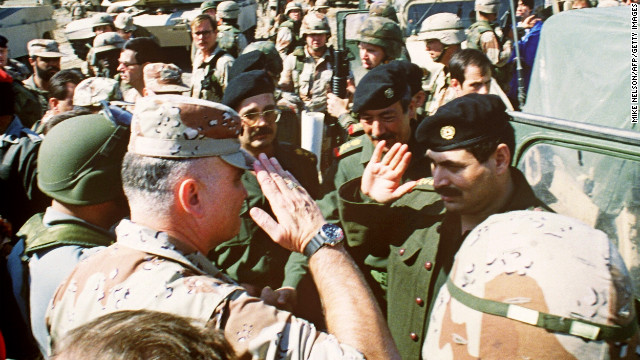 Schwarzkopf salutes Iraqi Lt. Gen. Sultan Hashim Ahmad at the end of their talks to set cease-fire terms in the Gulf War on March 3, 1991, at a captured Iraqi air base.
Schwarzkopf salutes Iraqi Lt. Gen. Sultan Hashim Ahmad at the end of their talks to set cease-fire terms in the Gulf War on March 3, 1991, at a captured Iraqi air base. 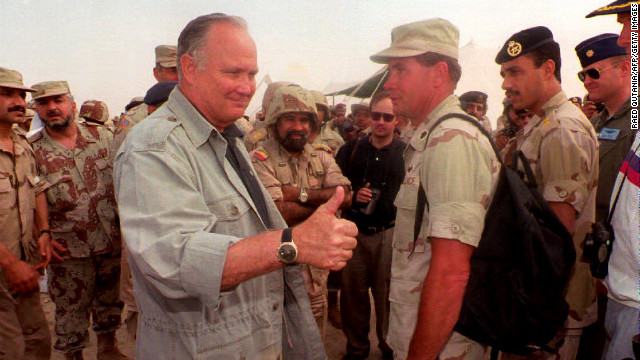 Schwarzkopf gives the thumbs up in Kuwait on April 17, 1994, during the last day of joint Kuwaiti-American-British maneuvers. Schwarzkopf was invited to observe the exercises, the biggest in the emirate since the Gulf War.
Schwarzkopf gives the thumbs up in Kuwait on April 17, 1994, during the last day of joint Kuwaiti-American-British maneuvers. Schwarzkopf was invited to observe the exercises, the biggest in the emirate since the Gulf War. 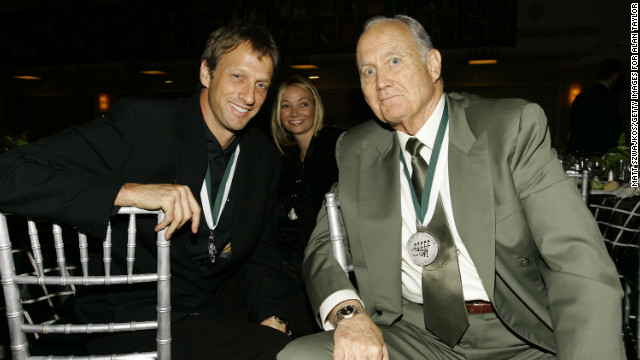 Tony Hawk, Lhotse Merriam and Schwarzkopf attend the 21st Annual Great Sports Legends Dinner to benefit The Buoniconti Fund to Cure Paralysis at the Waldorf Astoria on September 19, 2006, in New York.
Tony Hawk, Lhotse Merriam and Schwarzkopf attend the 21st Annual Great Sports Legends Dinner to benefit The Buoniconti Fund to Cure Paralysis at the Waldorf Astoria on September 19, 2006, in New York. 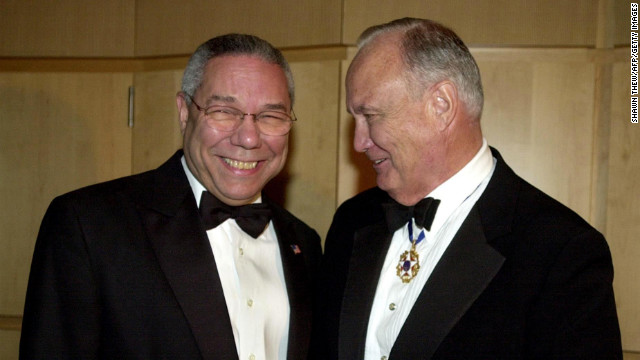 U.S. Secretary of State Colin Powell talks with Schwarzkopf on December 6, 2002, during a receptionbefore the American Patriot Award Dinner in Washington. The dinner honored former U.S. President George H. W. Bush.
U.S. Secretary of State Colin Powell talks with Schwarzkopf on December 6, 2002, during a receptionbefore the American Patriot Award Dinner in Washington. The dinner honored former U.S. President George H. W. Bush. 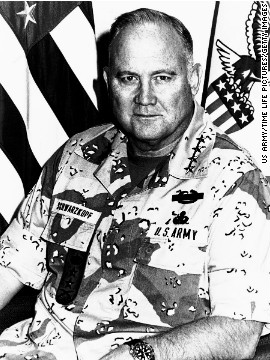 Portrait of Schwarzkopf circa 1991.
Portrait of Schwarzkopf circa 1991. 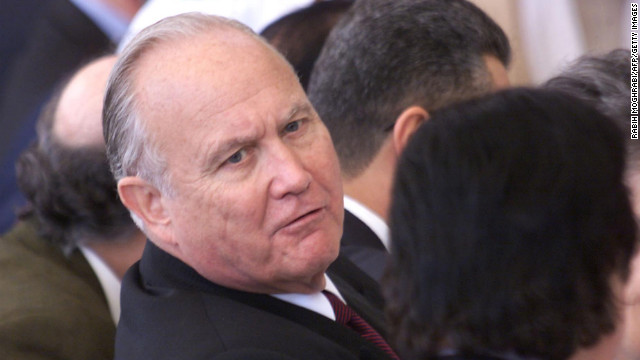 Schwarzkopf lunches at the Scientific Center in Kuwait City on February 26, 2001, to mark the 10th anniversary of Kuwait's liberation from Iraq.
Schwarzkopf lunches at the Scientific Center in Kuwait City on February 26, 2001, to mark the 10th anniversary of Kuwait's liberation from Iraq. 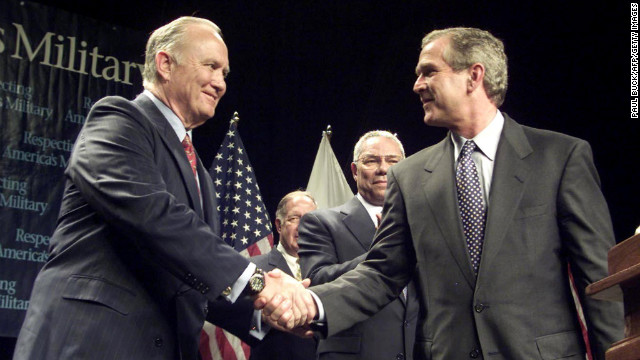 Republican presidential candidate and Texas Gov. George W. Bush and Schwarzkopf on stage after their speeches to veterans at Wright State University in Dayton, Ohio, on September 7, 2000.
Republican presidential candidate and Texas Gov. George W. Bush and Schwarzkopf on stage after their speeches to veterans at Wright State University in Dayton, Ohio, on September 7, 2000. 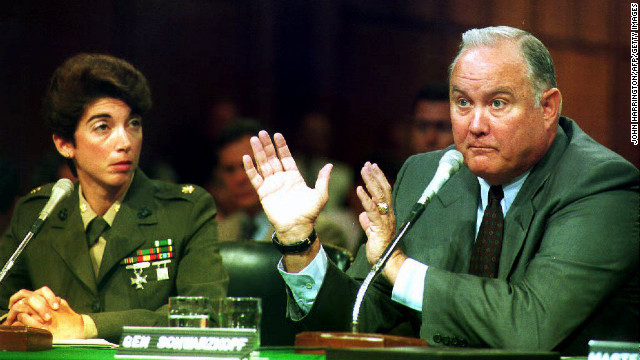 Schwarzkopf testifies before the Senate Armed Services Committee on May 11, 1993, alongside Maj. Kathleen Bergeron of the U.S. Marine Corps. Schwarzkopf and Bergeron defended the ban on gays in the military. Gen. Norman Schwarzkopf through the years Gen. Norman Schwarzkopf through the years Gen. Norman Schwarzkopf through the years Gen. Norman Schwarzkopf through the years Gen. Norman Schwarzkopf through the years Gen. Norman Schwarzkopf through the years Gen. Norman Schwarzkopf through the years Gen. Norman Schwarzkopf through the years Gen. Norman Schwarzkopf through the years Gen. Norman Schwarzkopf through the years HIDE CAPTION << <
Schwarzkopf testifies before the Senate Armed Services Committee on May 11, 1993, alongside Maj. Kathleen Bergeron of the U.S. Marine Corps. Schwarzkopf and Bergeron defended the ban on gays in the military. Gen. Norman Schwarzkopf through the years Gen. Norman Schwarzkopf through the years Gen. Norman Schwarzkopf through the years Gen. Norman Schwarzkopf through the years Gen. Norman Schwarzkopf through the years Gen. Norman Schwarzkopf through the years Gen. Norman Schwarzkopf through the years Gen. Norman Schwarzkopf through the years Gen. Norman Schwarzkopf through the years Gen. Norman Schwarzkopf through the years HIDE CAPTION << < 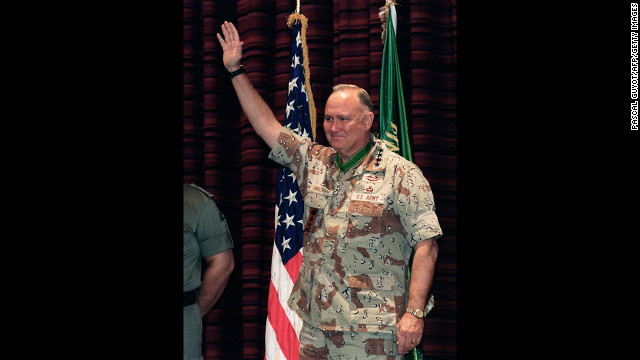 Retired Gen. Norman Schwarzkopf, who commanded coalition forces during the Gulf War, died Thursday, December 27, a U.S. official said. He was 78.
Retired Gen. Norman Schwarzkopf, who commanded coalition forces during the Gulf War, died Thursday, December 27, a U.S. official said. He was 78. 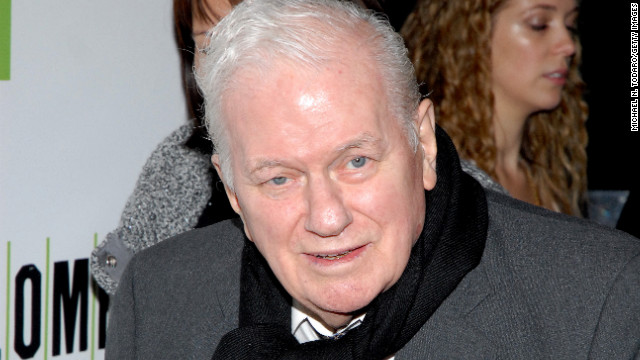 Character actor Charles Durning died December 24 at 89, according to his family. He won Tony and Golden Globe awards and received two Oscar nominations as best supporting actor, including for "The Best Little Whorehouse in Texas" (1982) and "To Be or Not to Be (1983).
Character actor Charles Durning died December 24 at 89, according to his family. He won Tony and Golden Globe awards and received two Oscar nominations as best supporting actor, including for "The Best Little Whorehouse in Texas" (1982) and "To Be or Not to Be (1983). 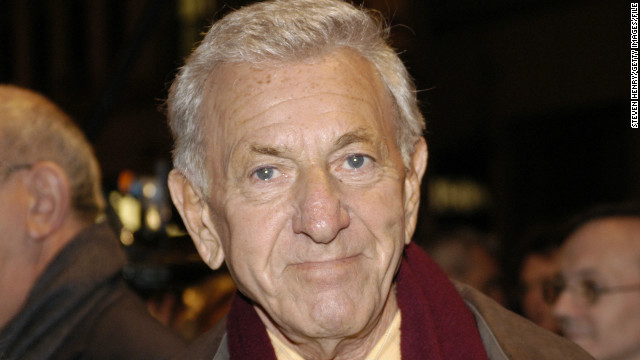 Actor Jack Klugman, best known for playing messy sportswriter Oscar Madison in TV's "The Odd Couple," died December 24 at age 90. Klugman won two Emmys for his role in the sitcom, plus won an Emmy in 1964 for a role in "The Defenders." Klugman also starred in "Quincy, M.E." as medical examiner Dr. R. Quincy from 1976 to 1983.
Actor Jack Klugman, best known for playing messy sportswriter Oscar Madison in TV's "The Odd Couple," died December 24 at age 90. Klugman won two Emmys for his role in the sitcom, plus won an Emmy in 1964 for a role in "The Defenders." Klugman also starred in "Quincy, M.E." as medical examiner Dr. R. Quincy from 1976 to 1983.  Conservative jurist Robert H. Bork died on December 19 at age 85 at his home in Virginia, sources close to his family told CNN. Bork was best known for being nominated to the Supreme Court in 1987, only to be rejected after a contentious confirmation battle.
Conservative jurist Robert H. Bork died on December 19 at age 85 at his home in Virginia, sources close to his family told CNN. Bork was best known for being nominated to the Supreme Court in 1987, only to be rejected after a contentious confirmation battle. 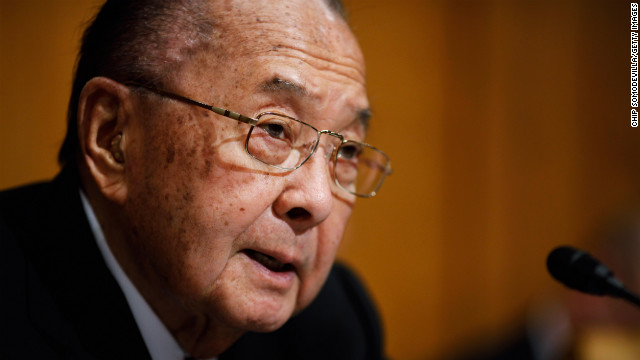 U.S. Sen. Daniel Inouye of Hawaii, the U.S. Senate's second-longest serving member, has died at 88, his office announced December 17.
U.S. Sen. Daniel Inouye of Hawaii, the U.S. Senate's second-longest serving member, has died at 88, his office announced December 17. 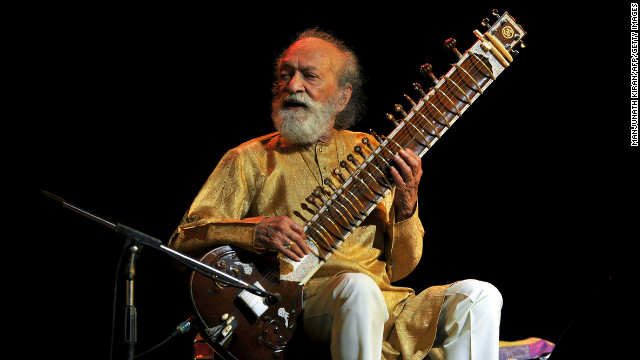 Indian sitar maestro Ravi Shankar died December 11 at age 92. The legendary sitar player brought Indian music to the West and taught Beatle George Harrison how to play the stringed instrument. Among his survivors is daughter Norah Jones, the pop and jazz singer.
Indian sitar maestro Ravi Shankar died December 11 at age 92. The legendary sitar player brought Indian music to the West and taught Beatle George Harrison how to play the stringed instrument. Among his survivors is daughter Norah Jones, the pop and jazz singer.  Singer Jenni Rivera, 43, died when the small plane she was traveling in crashed in the mountains of northern Mexico, her brother told CNN. The plane wreckage was found Sunday, December 9.
Singer Jenni Rivera, 43, died when the small plane she was traveling in crashed in the mountains of northern Mexico, her brother told CNN. The plane wreckage was found Sunday, December 9. 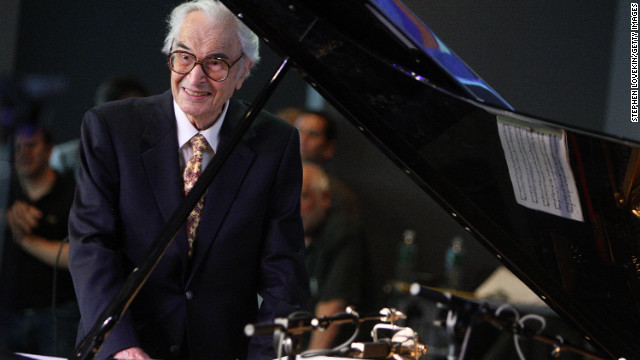 Jazz pianist Dave Brubeck, 91, died December 5 from heart failure, said his manager, Russell Gloyd.
Jazz pianist Dave Brubeck, 91, died December 5 from heart failure, said his manager, Russell Gloyd. 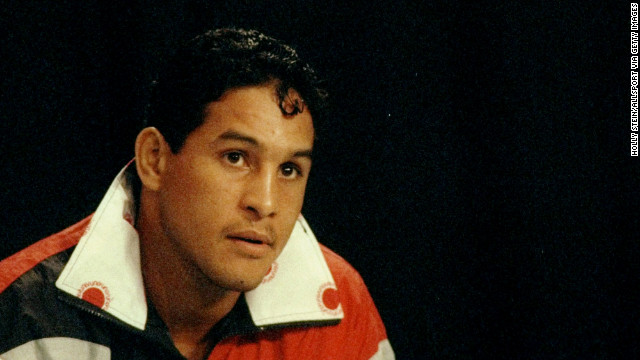 Puerto Rican boxer Hector "Macho" Camacho died on November 24. A gunman shot him in the face in front of a bar in his hometown of Bayamon.
Puerto Rican boxer Hector "Macho" Camacho died on November 24. A gunman shot him in the face in front of a bar in his hometown of Bayamon. 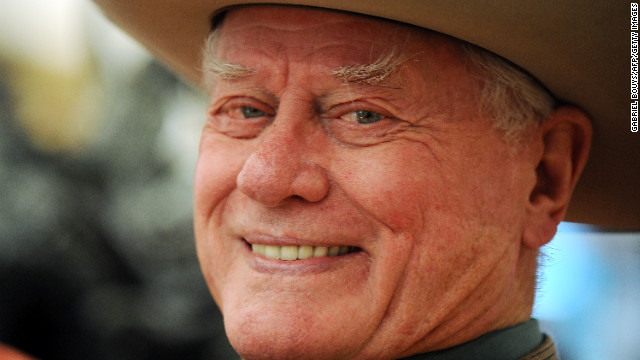 Actor Larry Hagman, who played scheming oil tycoon J.R. Ewing on "Dallas," died November 23 of complications from cancer. He was 81.
Actor Larry Hagman, who played scheming oil tycoon J.R. Ewing on "Dallas," died November 23 of complications from cancer. He was 81. 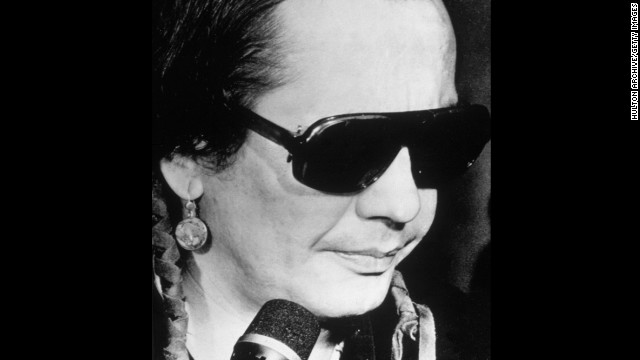 Native American activist Russell Means died October 22 from throat cancer, an Oglala Lakota Sioux nation representative said.
Native American activist Russell Means died October 22 from throat cancer, an Oglala Lakota Sioux nation representative said. 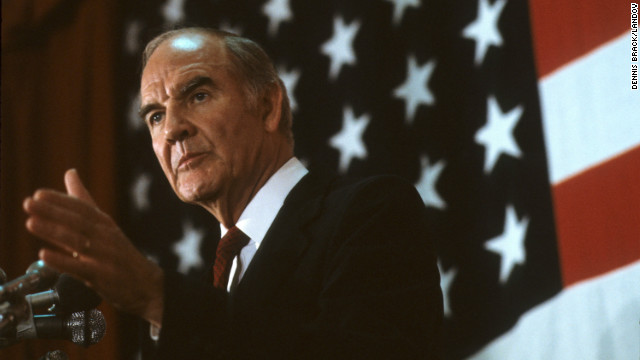 Former Sen. George McGovern, 90, died on October 21. McGovern was the Democratic nominee for president in 1972. He ran against incumbent Richard Nixon and won only 17 electoral votes to Nixon's 520. He served in the U.S. Senate and House representing South Dakota before his loss for the top office.
Former Sen. George McGovern, 90, died on October 21. McGovern was the Democratic nominee for president in 1972. He ran against incumbent Richard Nixon and won only 17 electoral votes to Nixon's 520. He served in the U.S. Senate and House representing South Dakota before his loss for the top office. 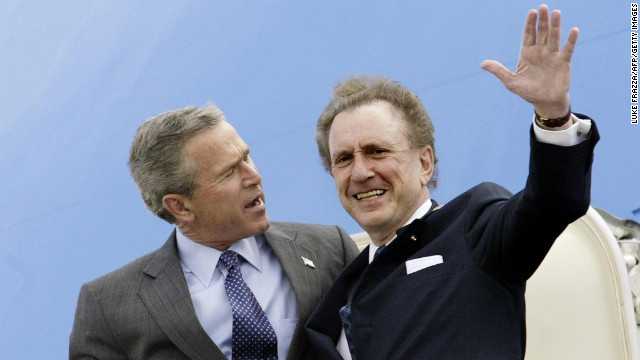 Former U.S. Sen. Arlen Specter of Pennsylvania died at age 82 of complications from non-Hodgkin's lymphoma on October 14 at his home in Philadelphia, his family said. Specter served five terms as a Republican senator and switched political affiliation in 2009.
Former U.S. Sen. Arlen Specter of Pennsylvania died at age 82 of complications from non-Hodgkin's lymphoma on October 14 at his home in Philadelphia, his family said. Specter served five terms as a Republican senator and switched political affiliation in 2009. 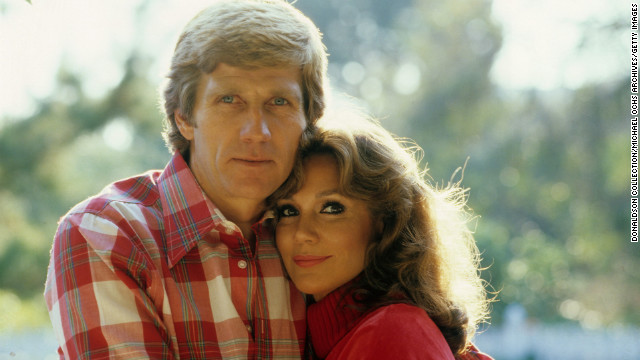 TV and radio personality Gary Collins -- seen here in "Hour Magazine" and also known for his roles in television series including "The Sixth Sense" and "The Wackiest Ship in the Army" -- died on October 13, according to officials in Harrison County, Mississippi. He was 74.
TV and radio personality Gary Collins -- seen here in "Hour Magazine" and also known for his roles in television series including "The Sixth Sense" and "The Wackiest Ship in the Army" -- died on October 13, according to officials in Harrison County, Mississippi. He was 74. 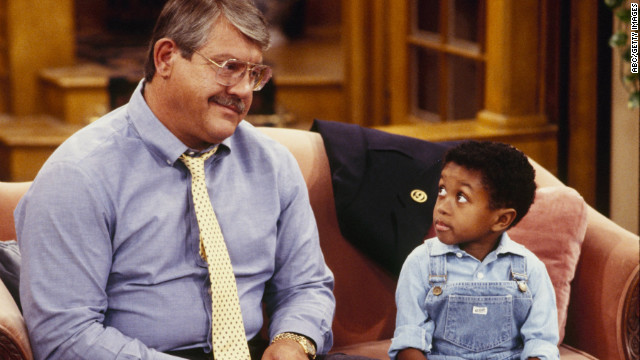 Former NFL player and actor Alex Karras died on October 10 in Los Angeles, a family spokesman said. He was 77.
Former NFL player and actor Alex Karras died on October 10 in Los Angeles, a family spokesman said. He was 77. 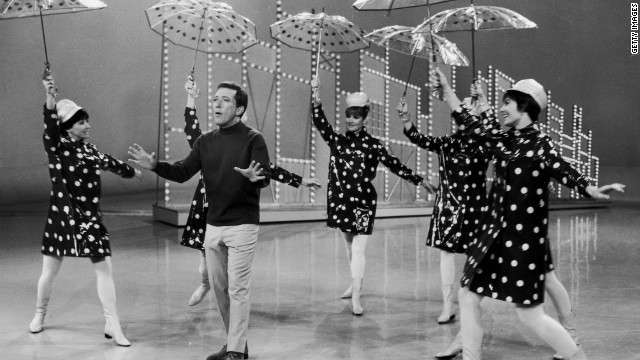 Legendary singer Andy Williams, known for his smooth voice and classics such as "Moon River," died after a yearlong battle with bladder cancer at his Branson, Missouri, home on September 25. He was 84.
Legendary singer Andy Williams, known for his smooth voice and classics such as "Moon River," died after a yearlong battle with bladder cancer at his Branson, Missouri, home on September 25. He was 84. 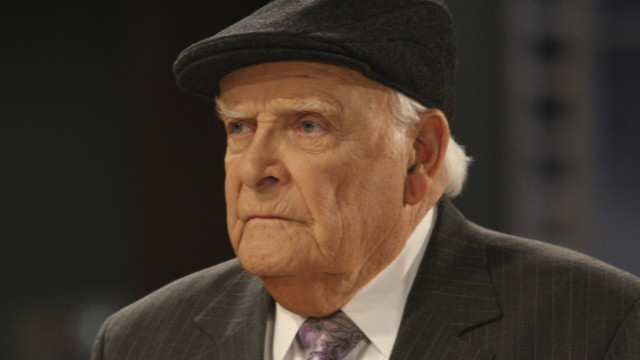 Actor John Ingle, who played patriarch Edward Quartermaine on ABC's "General Hospital," died September 15 at age 84.
Actor John Ingle, who played patriarch Edward Quartermaine on ABC's "General Hospital," died September 15 at age 84. 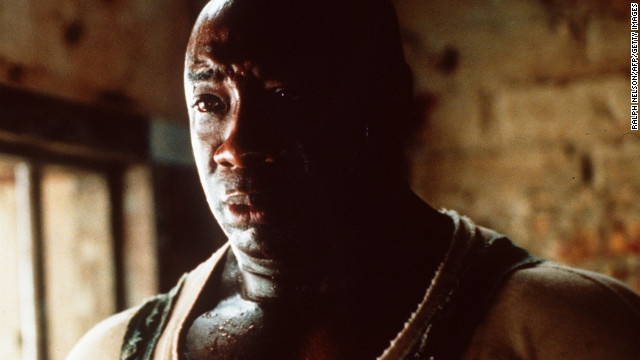 Michael Clarke Duncan, nominated for an Academy Award for his role in the 1999 film "The Green Mile," "suffered a myocardial infarction on July 13 and never fully recovered," a written statement from Joy Fehily said. He died September 3 at age 54.
Michael Clarke Duncan, nominated for an Academy Award for his role in the 1999 film "The Green Mile," "suffered a myocardial infarction on July 13 and never fully recovered," a written statement from Joy Fehily said. He died September 3 at age 54. 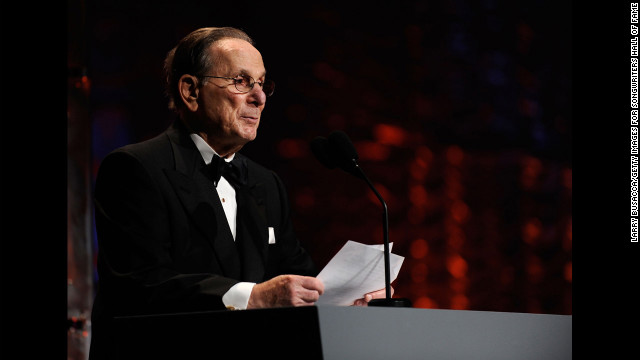 Hal David, the lyricist behind such standards as "Raindrops Keep Falling on My Head" and "What the World Needs Now is Love," died September 1 at age 91.
Hal David, the lyricist behind such standards as "Raindrops Keep Falling on My Head" and "What the World Needs Now is Love," died September 1 at age 91. 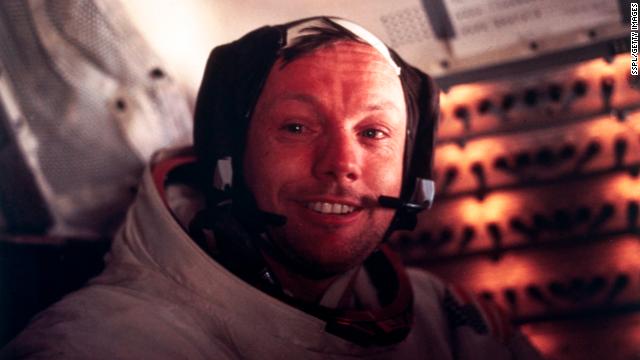 Neil Armstrong, the American astronaut who made "one giant leap for mankind" when he became the first man to walk on the moon, died August 25. He was 82.
Neil Armstrong, the American astronaut who made "one giant leap for mankind" when he became the first man to walk on the moon, died August 25. He was 82.  Helen Gurley Brown, former editor-in-chief of Cosmopolitan magazine and author of "Sex and the Single Girl," died on August 13 at age 90.
Helen Gurley Brown, former editor-in-chief of Cosmopolitan magazine and author of "Sex and the Single Girl," died on August 13 at age 90. 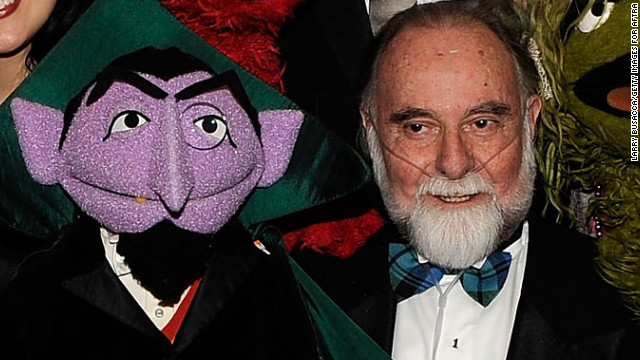 Puppeteer Jerry Nelson, famous for lending his voice to Muppets on "Sesame Street," "The Muppet Show" and "Fraggle Rock," died August 23. He was 78.
Puppeteer Jerry Nelson, famous for lending his voice to Muppets on "Sesame Street," "The Muppet Show" and "Fraggle Rock," died August 23. He was 78. 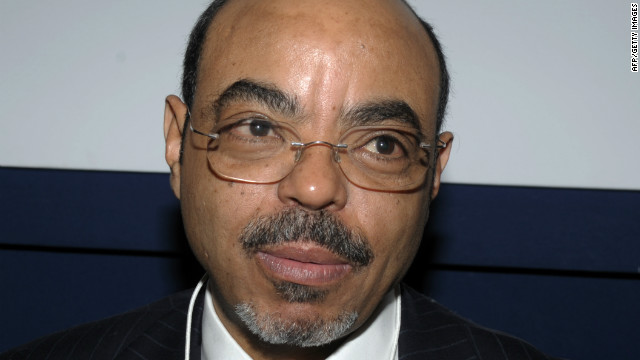 Ethiopian Prime Minister Meles Zenawi, a strongman in the troubled Horn of Africa and a key United States ally, died on August 20 at the age of 57.
Ethiopian Prime Minister Meles Zenawi, a strongman in the troubled Horn of Africa and a key United States ally, died on August 20 at the age of 57. 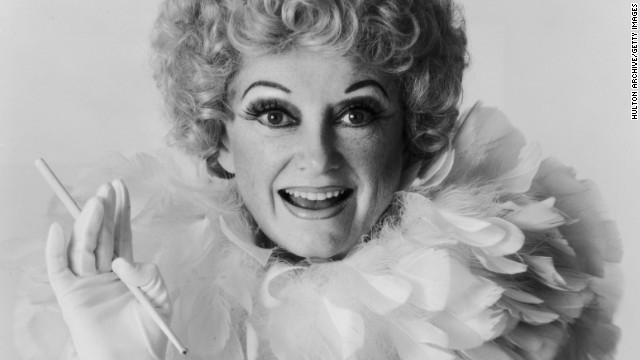 Comedian Phyllis Diller, known for her self-deprecating humor, died "peacefully in her sleep" on August 20. She was 95.
Comedian Phyllis Diller, known for her self-deprecating humor, died "peacefully in her sleep" on August 20. She was 95. 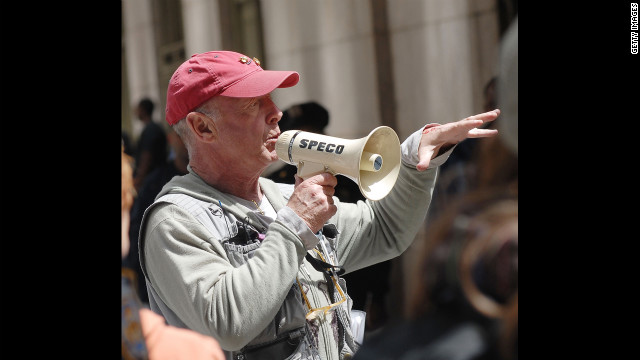 Film director Tony Scott left notes in his car and office before plunging to his death from the Vincent Thomas Bridge in San Pedro, California, a Los Angeles County coroner official said. Scott died August 19 at age 68.
Film director Tony Scott left notes in his car and office before plunging to his death from the Vincent Thomas Bridge in San Pedro, California, a Los Angeles County coroner official said. Scott died August 19 at age 68.  Actor Ron Palillo, who played class clown Arnold Horshack on the 1970s television comedy "Welcome Back, Kotter," died from a heart attack at age 63 on August 14.
Actor Ron Palillo, who played class clown Arnold Horshack on the 1970s television comedy "Welcome Back, Kotter," died from a heart attack at age 63 on August 14. 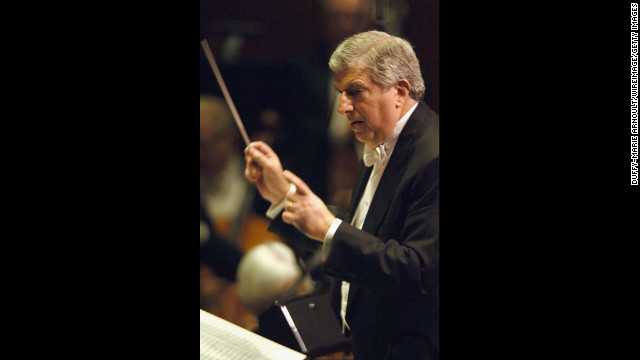 Marvin Hamlisch, a prolific American composer, died August 6 after a more than four-decade career that spanned film, music, television and theater. He was 68.
Marvin Hamlisch, a prolific American composer, died August 6 after a more than four-decade career that spanned film, music, television and theater. He was 68. 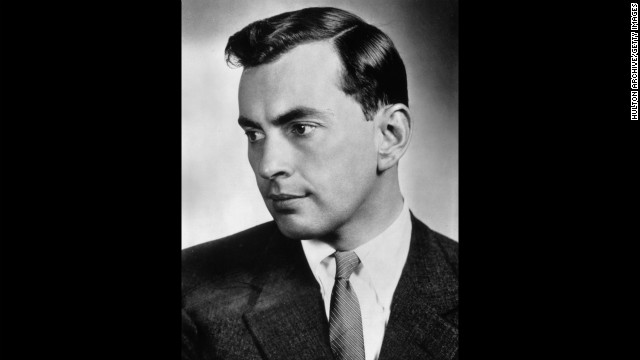 Writer Gore Vidal died July 31 of complications from pneumonia, a nephew said. He was 86.
Writer Gore Vidal died July 31 of complications from pneumonia, a nephew said. He was 86. 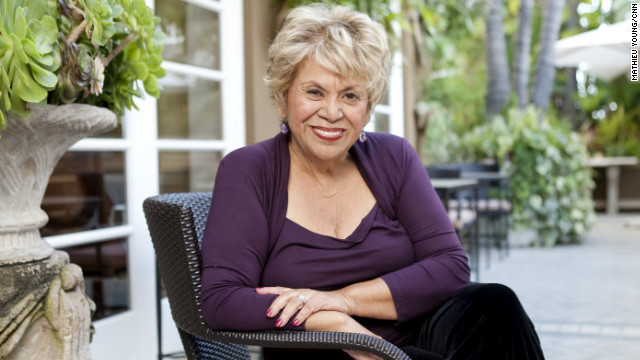 At 69, actress Lupe Ontiveros, who co-starred in the hit films "Selena" and "As Good As It Gets," died of liver cancer on July 26.
At 69, actress Lupe Ontiveros, who co-starred in the hit films "Selena" and "As Good As It Gets," died of liver cancer on July 26. 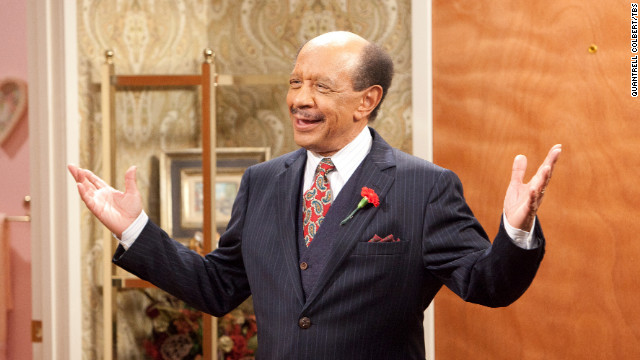 Sherman Hemsley, who played the brash George Jefferson on "All in the Family" and "The Jeffersons," died July 24 at age 74.
Sherman Hemsley, who played the brash George Jefferson on "All in the Family" and "The Jeffersons," died July 24 at age 74. 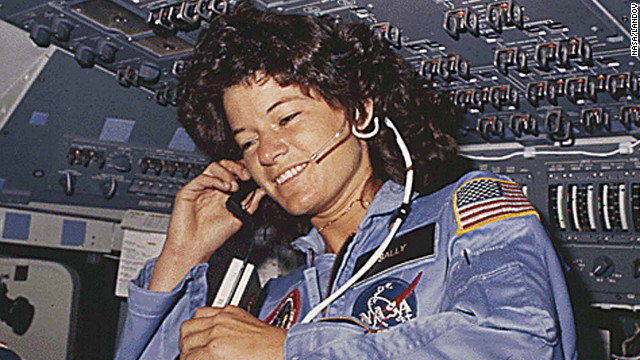 Sally Ride, the first American woman to fly in space, died after a 17-month battle with pancreatic cancer on July 23. She was 61.
Sally Ride, the first American woman to fly in space, died after a 17-month battle with pancreatic cancer on July 23. She was 61. 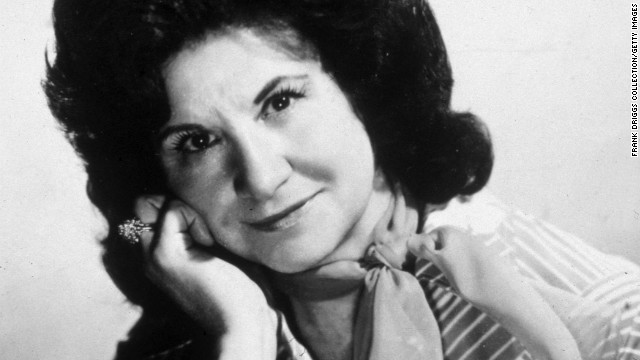 Country legend Kitty Wells died on July 16, due to complications from a stroke. She was 92.
Country legend Kitty Wells died on July 16, due to complications from a stroke. She was 92.  Keyboard player Jon Lord, who fused classical and heavy metal to make Deep Purple one of the biggest rock bands in the world, died July 16 after a long battle with pancreatic cancer. He was 71.
Keyboard player Jon Lord, who fused classical and heavy metal to make Deep Purple one of the biggest rock bands in the world, died July 16 after a long battle with pancreatic cancer. He was 71. 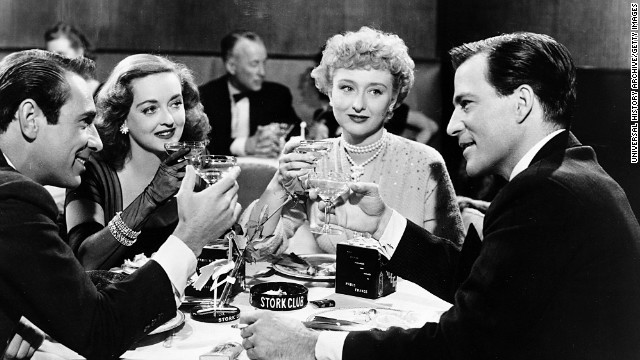 Oscar-winning actress Celeste Holm died at her home in New York on July 15 at the age of 95. Here Holm, center, appears in 1950's "All About Eve" with Garry Merrill, from left, Bette Davis and Hugh Marlow.
Oscar-winning actress Celeste Holm died at her home in New York on July 15 at the age of 95. Here Holm, center, appears in 1950's "All About Eve" with Garry Merrill, from left, Bette Davis and Hugh Marlow. 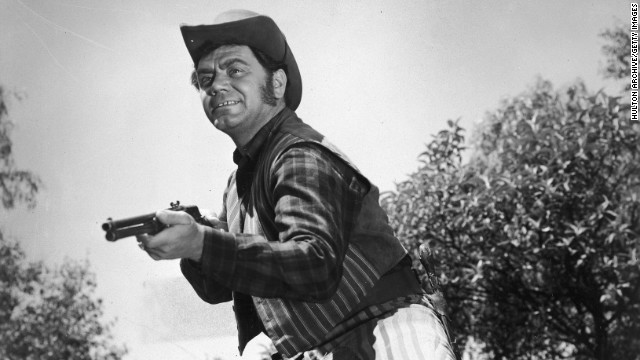 On July 8, film and television actor Ernest Borgnine, who won an Academy Award for his portrayal of a lovelorn butcher in 1955's "Marty," died at age 95.
On July 8, film and television actor Ernest Borgnine, who won an Academy Award for his portrayal of a lovelorn butcher in 1955's "Marty," died at age 95. 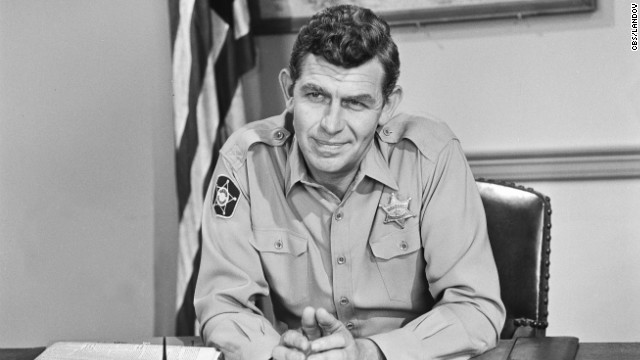 Actor Andy Griffith, who played folksy Sheriff Andy Taylor in the fictional town of Mayberry, died July 3 at the age of 86.
Actor Andy Griffith, who played folksy Sheriff Andy Taylor in the fictional town of Mayberry, died July 3 at the age of 86. 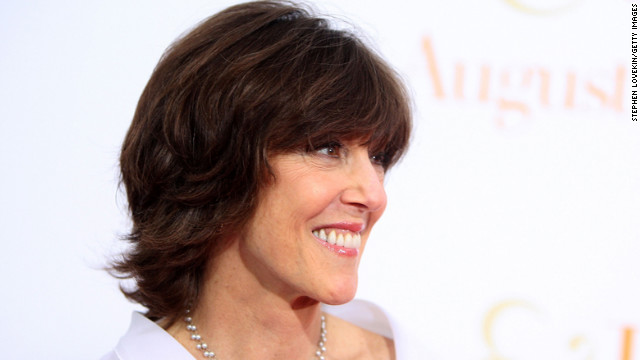 Nora Ephron, the screenwriter and director whose sharp, edgy romantic comedies featuring strong women took her to the top ranks of a film industry mostly dominated by men, died June 26 at age 71.
Nora Ephron, the screenwriter and director whose sharp, edgy romantic comedies featuring strong women took her to the top ranks of a film industry mostly dominated by men, died June 26 at age 71. 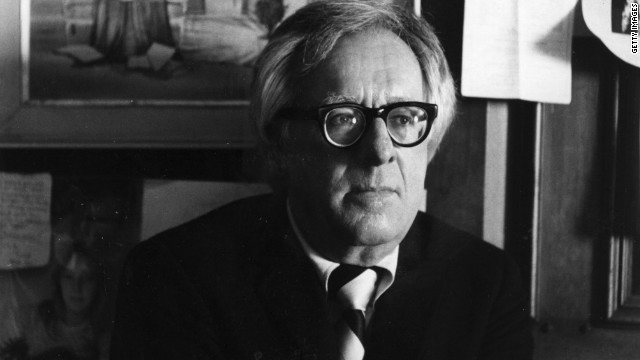 Science fiction author Ray Bradbury, whose imagination yielded classic books such as "Fahrenheit 451," "The Martian Chronicles" and "Something Wicked This Way Comes," died at 91 on June 5.
Science fiction author Ray Bradbury, whose imagination yielded classic books such as "Fahrenheit 451," "The Martian Chronicles" and "Something Wicked This Way Comes," died at 91 on June 5. 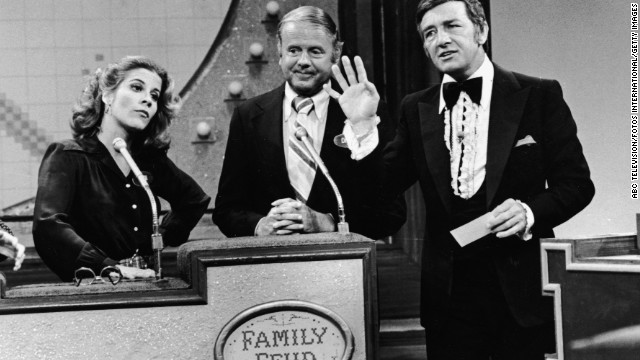 Former "Family Feud" host Richard Dawson died on June 2 at the age of 79.
Former "Family Feud" host Richard Dawson died on June 2 at the age of 79. 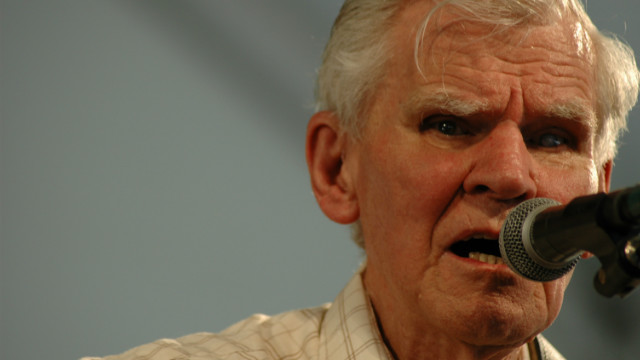 Bluegrass guitarist and singer Doc Watson died at 89 on May 29 after struggling to recover from colon surgery.
Bluegrass guitarist and singer Doc Watson died at 89 on May 29 after struggling to recover from colon surgery. 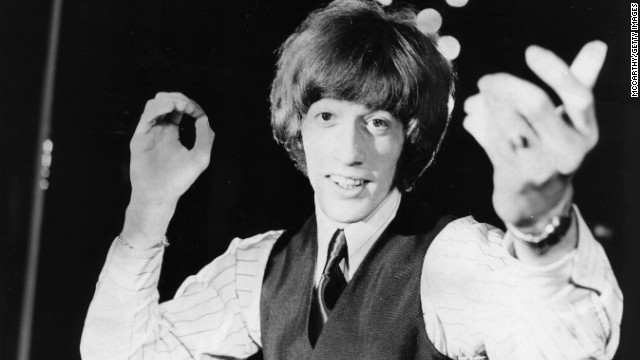 Robin Gibb, one of three brothers who made up the Bee Gees, the group behind "Saturday Night Fever" and other iconic sounds from the 1970s, died on May 20. He was 62. Gibb died "following his long battle with cancer and intestinal surgery," a statement said.
Robin Gibb, one of three brothers who made up the Bee Gees, the group behind "Saturday Night Fever" and other iconic sounds from the 1970s, died on May 20. He was 62. Gibb died "following his long battle with cancer and intestinal surgery," a statement said. 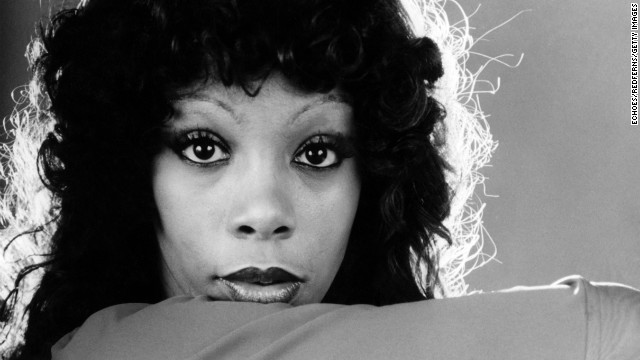 Donna Summer, the "Queen of Disco" whose hits included "Hot Stuff," "Bad Girls," "Love to Love You Baby" and "She Works Hard for the Money," died May 17. She was 63.
Donna Summer, the "Queen of Disco" whose hits included "Hot Stuff," "Bad Girls," "Love to Love You Baby" and "She Works Hard for the Money," died May 17. She was 63. 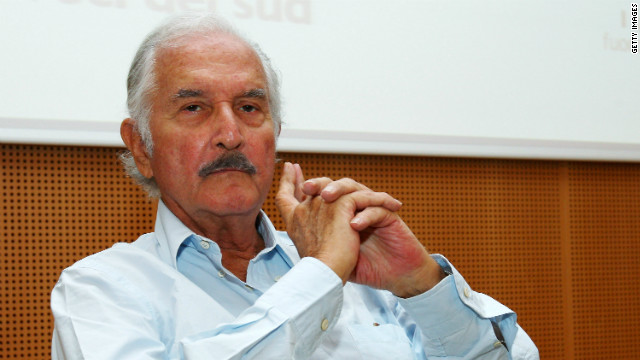 Mexican author Carlos Fuentes died on May 15 at the age of 83.
Mexican author Carlos Fuentes died on May 15 at the age of 83.  Donald "Duck" Dunn, left, the bass player who laid the musical floor beneath soul legends like Booker T. and the MGs, Sam and Dave and Otis Redding, died May 13. He was 70.
Donald "Duck" Dunn, left, the bass player who laid the musical floor beneath soul legends like Booker T. and the MGs, Sam and Dave and Otis Redding, died May 13. He was 70. 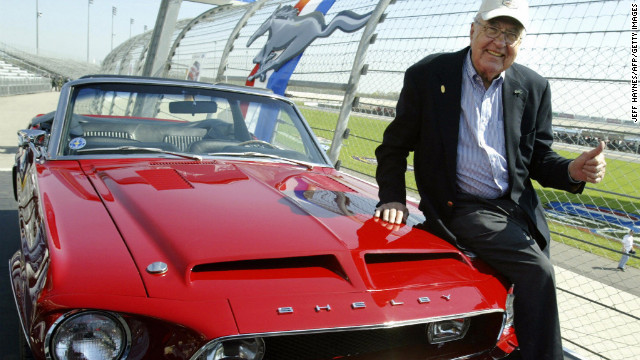 Carroll Shelby, famous for creating high-performance road and racing cars bearing his name, died on May 10 in Dallas. He was 89. His name is probably most associated with the Cobra and the Shelby line of Ford Mustang-based performance cars.
Carroll Shelby, famous for creating high-performance road and racing cars bearing his name, died on May 10 in Dallas. He was 89. His name is probably most associated with the Cobra and the Shelby line of Ford Mustang-based performance cars.  British-Israeli hairdresser Vidal Sassoon died on May 9 at the age of 84.
British-Israeli hairdresser Vidal Sassoon died on May 9 at the age of 84. 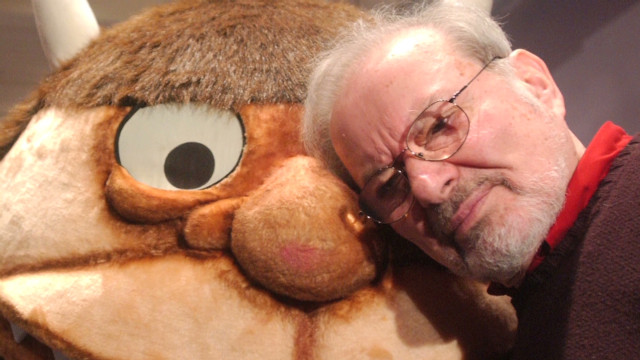 Maurice Sendak, author of "Where the Wild Things Are" and illustrator of nearly 100 books, died at age 83 on May 8.
Maurice Sendak, author of "Where the Wild Things Are" and illustrator of nearly 100 books, died at age 83 on May 8. 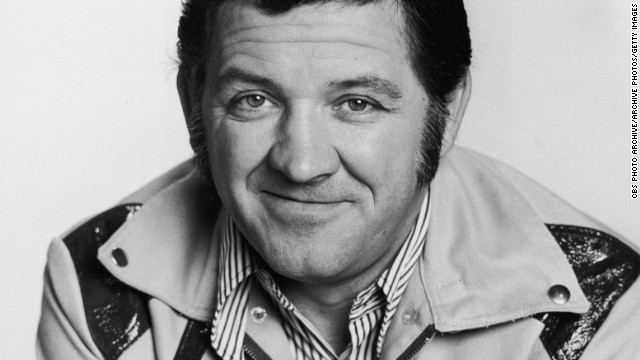 George Lindsey, the actor who portrayed the country-bumpkin mechanic Goober Pyle on "The Andy Griffith Show," died May 6 after a brief illness, his family said. He was 83.
George Lindsey, the actor who portrayed the country-bumpkin mechanic Goober Pyle on "The Andy Griffith Show," died May 6 after a brief illness, his family said. He was 83. 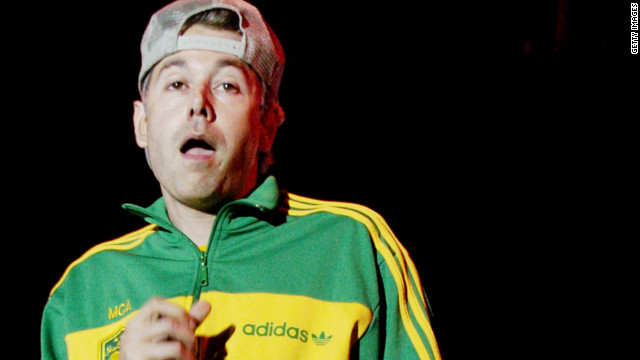 Adam "MCA" Yauch, a founding member of the pioneering rap band Beastie Boys, died on May 4 after a nearly three-year battle with cancer. He was 47.
Adam "MCA" Yauch, a founding member of the pioneering rap band Beastie Boys, died on May 4 after a nearly three-year battle with cancer. He was 47. 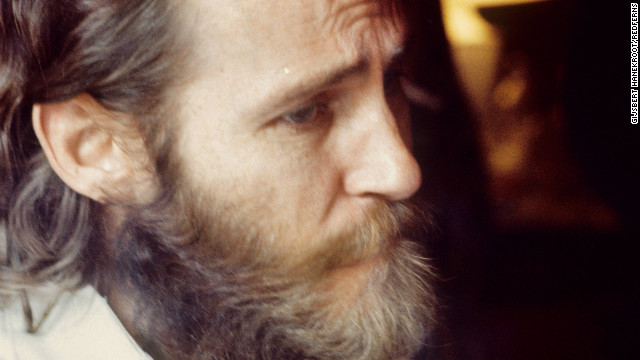 Levon Helm, the drummer, multi-instrumentalist and singer for The Band who kept the band's heart for more than three decades, died "peacefully" April 19, according to his record label, Vanguard Records. He was 71.
Levon Helm, the drummer, multi-instrumentalist and singer for The Band who kept the band's heart for more than three decades, died "peacefully" April 19, according to his record label, Vanguard Records. He was 71. 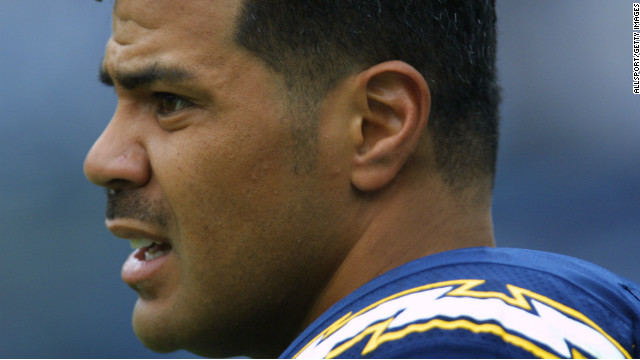 Junior Seau, linebacker for the San Diego Chargers, died from a self-inflicted gunshot wound on May 2.
Junior Seau, linebacker for the San Diego Chargers, died from a self-inflicted gunshot wound on May 2.  Television host Dick Clark poses for a portrait circa 1968. The longtime host of the influential "American Bandstand" died April 18 after suffering a heart attack. He was 82.
Television host Dick Clark poses for a portrait circa 1968. The longtime host of the influential "American Bandstand" died April 18 after suffering a heart attack. He was 82. 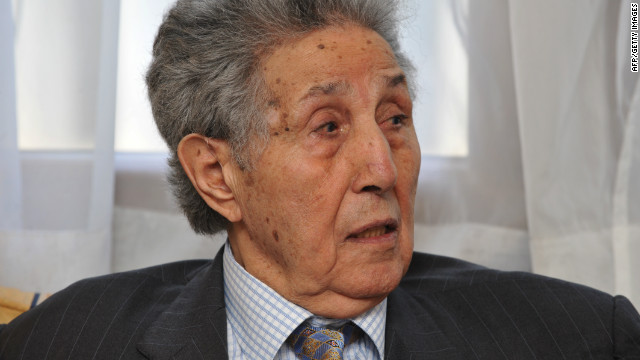 Former Algerian President Ahmed Ben Bella died on April 11 at the age of 96.
Former Algerian President Ahmed Ben Bella died on April 11 at the age of 96. 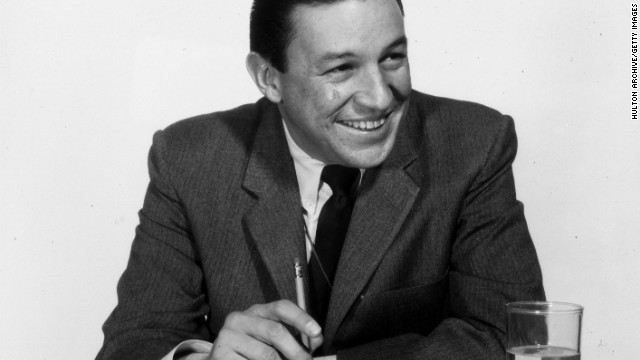 Mike Wallace, who spent four decades as a hard-hitting, provocative news correspondent on CBS' "60 Minutes," died at 93 on April 7.
Mike Wallace, who spent four decades as a hard-hitting, provocative news correspondent on CBS' "60 Minutes," died at 93 on April 7. 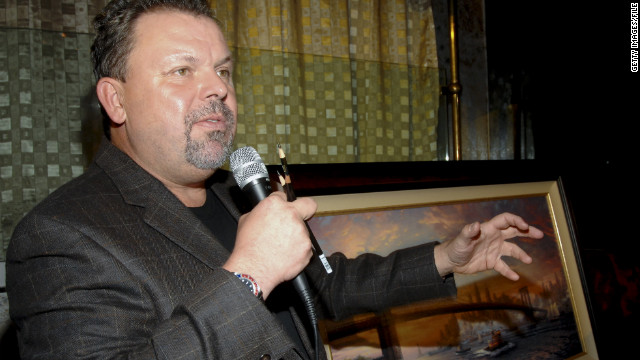 Artist Thomas Kinkade, the self-described "painter of light," died from accidental overdose of alcohol and Valium at age 54 on April 6.
Artist Thomas Kinkade, the self-described "painter of light," died from accidental overdose of alcohol and Valium at age 54 on April 6. 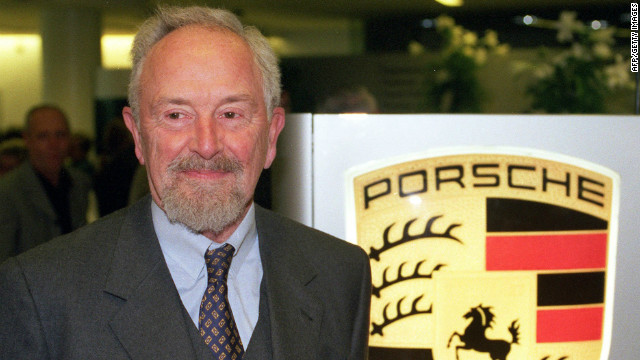 Porsche 911 designer Ferdinand Alexander Porsche died on April 5 at the age of 76.
Porsche 911 designer Ferdinand Alexander Porsche died on April 5 at the age of 76. 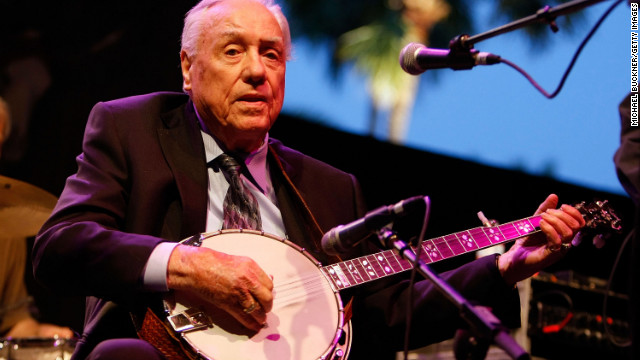 Earl Scruggs, whose distinctive picking style and association with Lester Flatt cemented bluegrass music's place in popular culture, died March 28 of natural causes at a Nashville hospital. He was 88.
Earl Scruggs, whose distinctive picking style and association with Lester Flatt cemented bluegrass music's place in popular culture, died March 28 of natural causes at a Nashville hospital. He was 88.  Doobie Brothers drummer Michael Hossack died at his home in Dubois, Wyoming, on March 11 at the age of 65 after battling cancer for some time.
Doobie Brothers drummer Michael Hossack died at his home in Dubois, Wyoming, on March 11 at the age of 65 after battling cancer for some time. 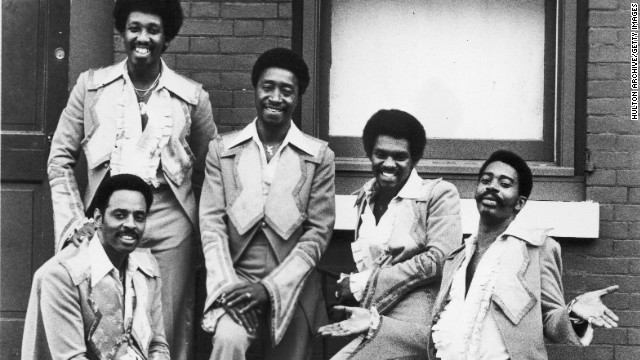 Jimmy Ellis, who belted out the dance anthem "Disco Inferno" in the 1970s for the Trammps, died on March 8 at 74 years old. Here, the Trammps in 1973: From left, Earl Young, seated, Harold Wade, Jimmy Ellis, Stanley Wade and Robert Upchurch.
Jimmy Ellis, who belted out the dance anthem "Disco Inferno" in the 1970s for the Trammps, died on March 8 at 74 years old. Here, the Trammps in 1973: From left, Earl Young, seated, Harold Wade, Jimmy Ellis, Stanley Wade and Robert Upchurch. 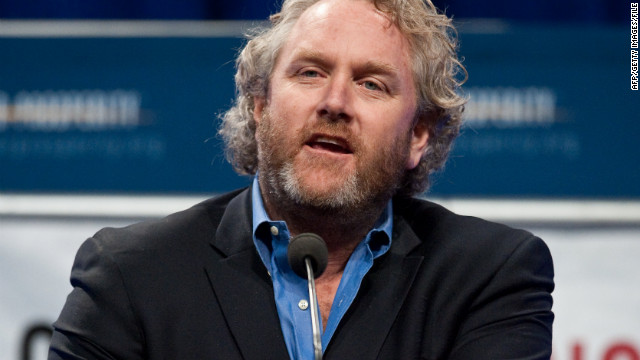 Andrew Breitbart, editor and founder of the conservative blog BigGovernment.com, died at age 43 of natural causes on March 1. His posting of an explicit photo U.S. Rep. Anthony Weiner sent to Twitter followers led to Weiner's downfall.
Andrew Breitbart, editor and founder of the conservative blog BigGovernment.com, died at age 43 of natural causes on March 1. His posting of an explicit photo U.S. Rep. Anthony Weiner sent to Twitter followers led to Weiner's downfall. 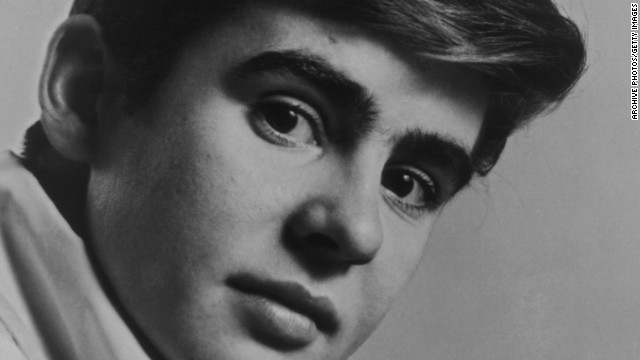 Davy Jones, whose charming grin and British accent won the hearts of millions of fans on the 1960s television series "The Monkees," died on February 29 at age 66.
Davy Jones, whose charming grin and British accent won the hearts of millions of fans on the 1960s television series "The Monkees," died on February 29 at age 66. 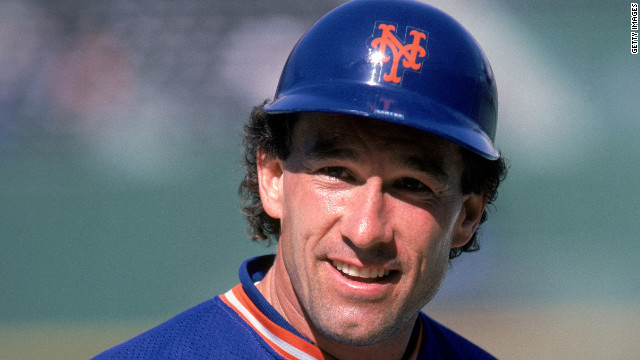 Hall of Fame catcher for the New York Mets Gary Carter lost a battle to brain cancer at age 57 on February 16.
Hall of Fame catcher for the New York Mets Gary Carter lost a battle to brain cancer at age 57 on February 16. 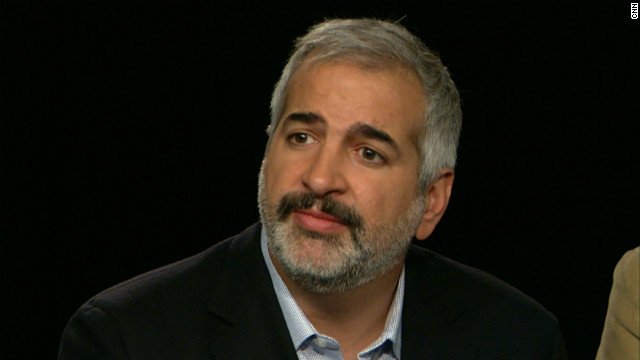 New York Times reporter Anthony Shadid died of an asthma attack in Syria on February 16.
New York Times reporter Anthony Shadid died of an asthma attack in Syria on February 16.  The news broke on the eve of the Grammy Awards, the music industry's biggest night: The woman with the pitch-perfect voice who once reigned as the queen of pop at the awards show had died. Whitney Houston was found dead by her bodyguard on February 11. She was 48.
The news broke on the eve of the Grammy Awards, the music industry's biggest night: The woman with the pitch-perfect voice who once reigned as the queen of pop at the awards show had died. Whitney Houston was found dead by her bodyguard on February 11. She was 48. 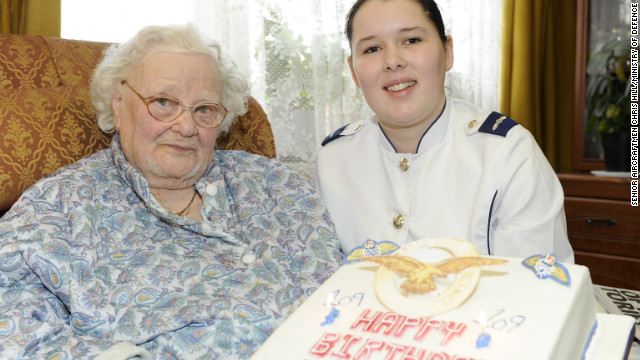 The last known surviving veteran of World War I died on February 4. Florence Green, 110, was a waitress in Britain's Royal Air Force.
The last known surviving veteran of World War I died on February 4. Florence Green, 110, was a waitress in Britain's Royal Air Force. 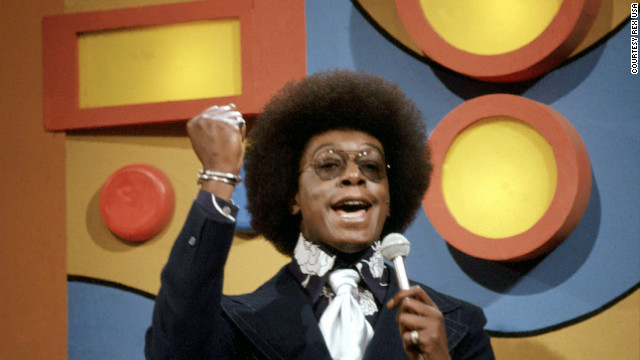 Don Cornelius, the founder of the "Soul Train" television show, was found dead of an apparent self-inflicted gunshot wound to his head on February 1. It was later ruled a suicide. He was 75.
Don Cornelius, the founder of the "Soul Train" television show, was found dead of an apparent self-inflicted gunshot wound to his head on February 1. It was later ruled a suicide. He was 75. 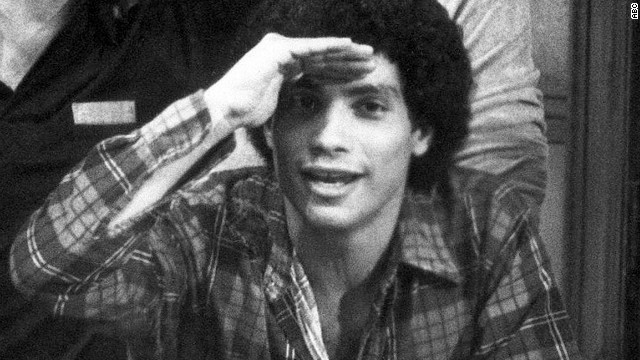 Robert Hegyes, known for his role as Juan Epstein on the '70s sitcom "Welcome Back, Kotter," died on January 26. He was 60.
Robert Hegyes, known for his role as Juan Epstein on the '70s sitcom "Welcome Back, Kotter," died on January 26. He was 60. 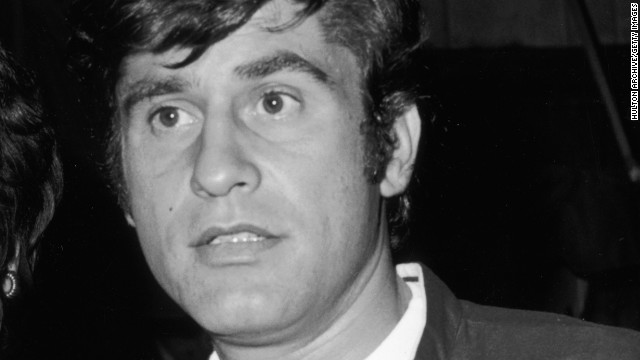 Actor James Farentino, whose television acting career began in the early 1960s, died on January 24. He was 73.
Actor James Farentino, whose television acting career began in the early 1960s, died on January 24. He was 73. 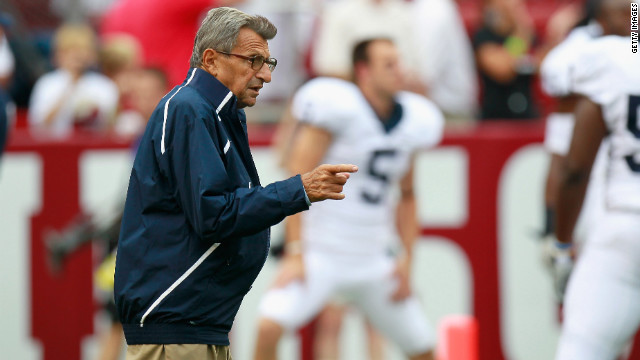 Longtime Penn State Coach Joe Paterno -- whose tenure as the most successful coach in major college football history ended abruptly in November 2011 amid allegations that he failed to respond forcefully enough to a sex abuse scandal involving a former assistant -- died January 22, his family said. He was 85.
Longtime Penn State Coach Joe Paterno -- whose tenure as the most successful coach in major college football history ended abruptly in November 2011 amid allegations that he failed to respond forcefully enough to a sex abuse scandal involving a former assistant -- died January 22, his family said. He was 85. 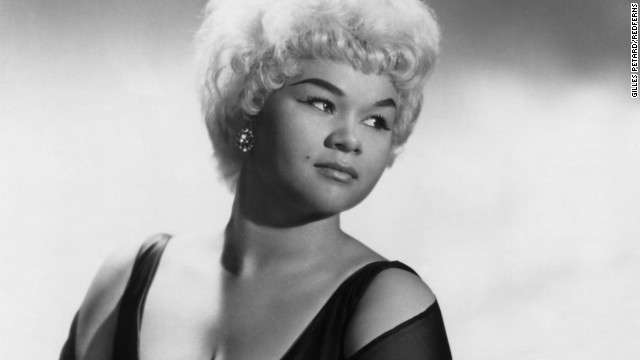 Etta James, whose assertive, earthy voice lit up such hits as "The Wallflower," "Something's Got a Hold on Me" and the wedding favorite "At Last," died on January 20. She was 73. People we've lost in 2012 People we've lost in 2012 People we've lost in 2012 People we've lost in 2012 People we've lost in 2012 People we've lost in 2012 People we've lost in 2012 People we've lost in 2012 People we've lost in 2012 People we've lost in 2012 People we've lost in 2012 People we've lost in 2012 People we've lost in 2012 People we've lost in 2012 People we've lost in 2012 People we've lost in 2012 People we've lost in 2012 People we've lost in 2012 People we've lost in 2012 People we've lost in 2012 People we've lost in 2012 Helen Gurley Brown People we've lost in 2012 People we've lost in 2012 People we've lost in 2012 People we've lost in 2012 People we've lost in 2012 People we've lost in 2012 People we've lost in 2012 People we've lost in 2012 People we've lost in 2012 sally ride obit Kitty Wells People we've lost in 2012 People we've lost in 2012 People we've lost in 2012 People we've lost in 2012 People we've lost in 2012 Ray Bradbury People we've lost in 2012 Doc Watson People we've lost in 2012 People we've lost in 2012 People we've lost in 2012 People we've lost in 2012 People we've lost in 2012 People we've lost in 2012 Maurice Sendak People we've lost in 2012 People we've lost in 2012 People we've lost in 2012 Junior Seau People we've lost in 2012 People we've lost in 2012 Mike Wallace Thomas Kinkade People we've lost in 2012 People we've lost in 2012 People we've lost in 2012 People we've lost in 2012 Andrew Breitbart People we've lost in 2012 Gary Carter People we've lost in 2012 People we've lost in 2012 People we've lost in 2012 People we've lost in 2012 People we've lost in 2012 People we've lost in 2012 Joe Paterno People we've lost in 2012 HIDE CAPTION << <
Etta James, whose assertive, earthy voice lit up such hits as "The Wallflower," "Something's Got a Hold on Me" and the wedding favorite "At Last," died on January 20. She was 73. People we've lost in 2012 People we've lost in 2012 People we've lost in 2012 People we've lost in 2012 People we've lost in 2012 People we've lost in 2012 People we've lost in 2012 People we've lost in 2012 People we've lost in 2012 People we've lost in 2012 People we've lost in 2012 People we've lost in 2012 People we've lost in 2012 People we've lost in 2012 People we've lost in 2012 People we've lost in 2012 People we've lost in 2012 People we've lost in 2012 People we've lost in 2012 People we've lost in 2012 People we've lost in 2012 Helen Gurley Brown People we've lost in 2012 People we've lost in 2012 People we've lost in 2012 People we've lost in 2012 People we've lost in 2012 People we've lost in 2012 People we've lost in 2012 People we've lost in 2012 People we've lost in 2012 sally ride obit Kitty Wells People we've lost in 2012 People we've lost in 2012 People we've lost in 2012 People we've lost in 2012 People we've lost in 2012 Ray Bradbury People we've lost in 2012 Doc Watson People we've lost in 2012 People we've lost in 2012 People we've lost in 2012 People we've lost in 2012 People we've lost in 2012 People we've lost in 2012 Maurice Sendak People we've lost in 2012 People we've lost in 2012 People we've lost in 2012 Junior Seau People we've lost in 2012 People we've lost in 2012 Mike Wallace Thomas Kinkade People we've lost in 2012 People we've lost in 2012 People we've lost in 2012 People we've lost in 2012 Andrew Breitbart People we've lost in 2012 Gary Carter People we've lost in 2012 People we've lost in 2012 People we've lost in 2012 People we've lost in 2012 People we've lost in 2012 People we've lost in 2012 Joe Paterno People we've lost in 2012 HIDE CAPTION << <
{ 0 comments... read them below or add one }
Post a Comment